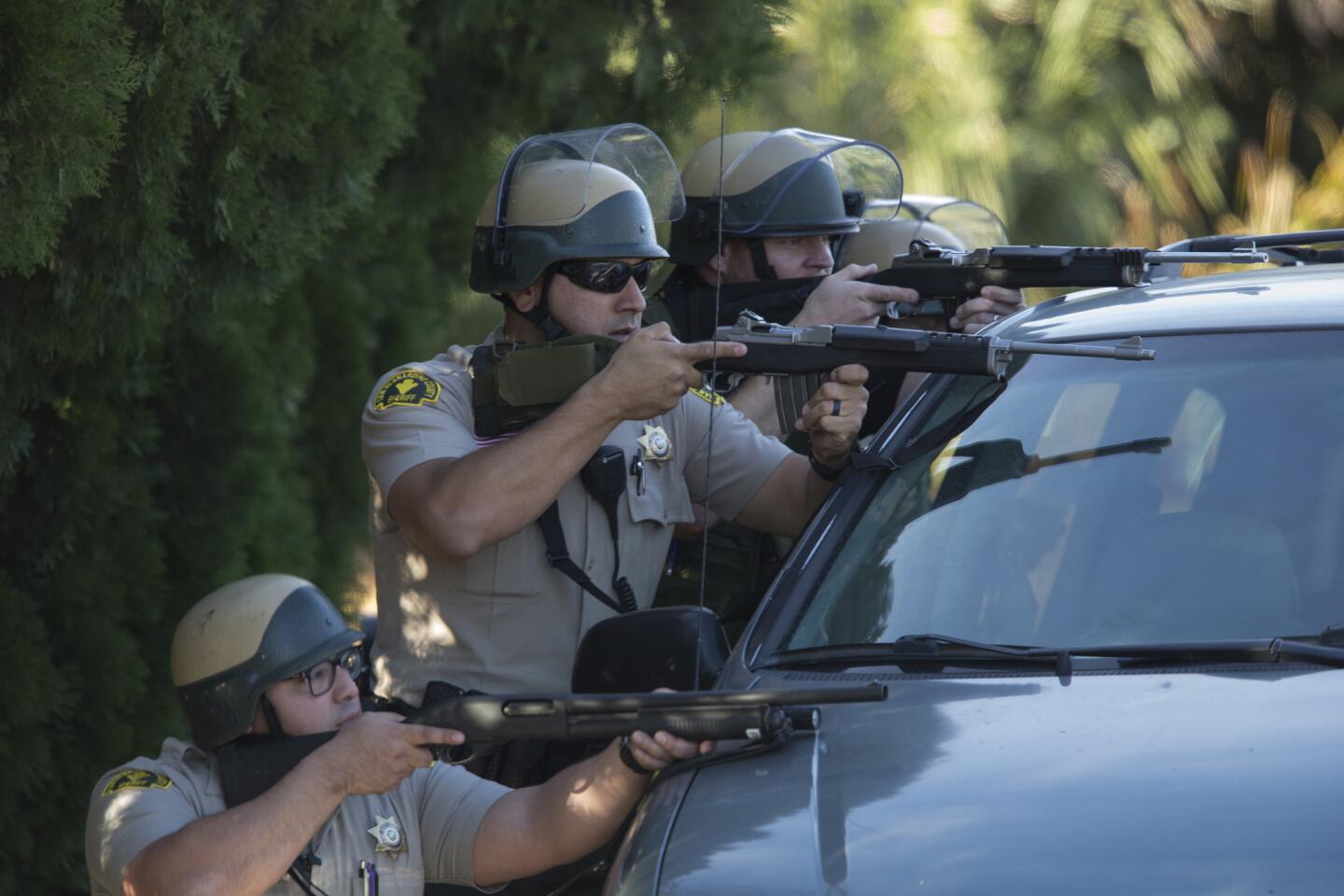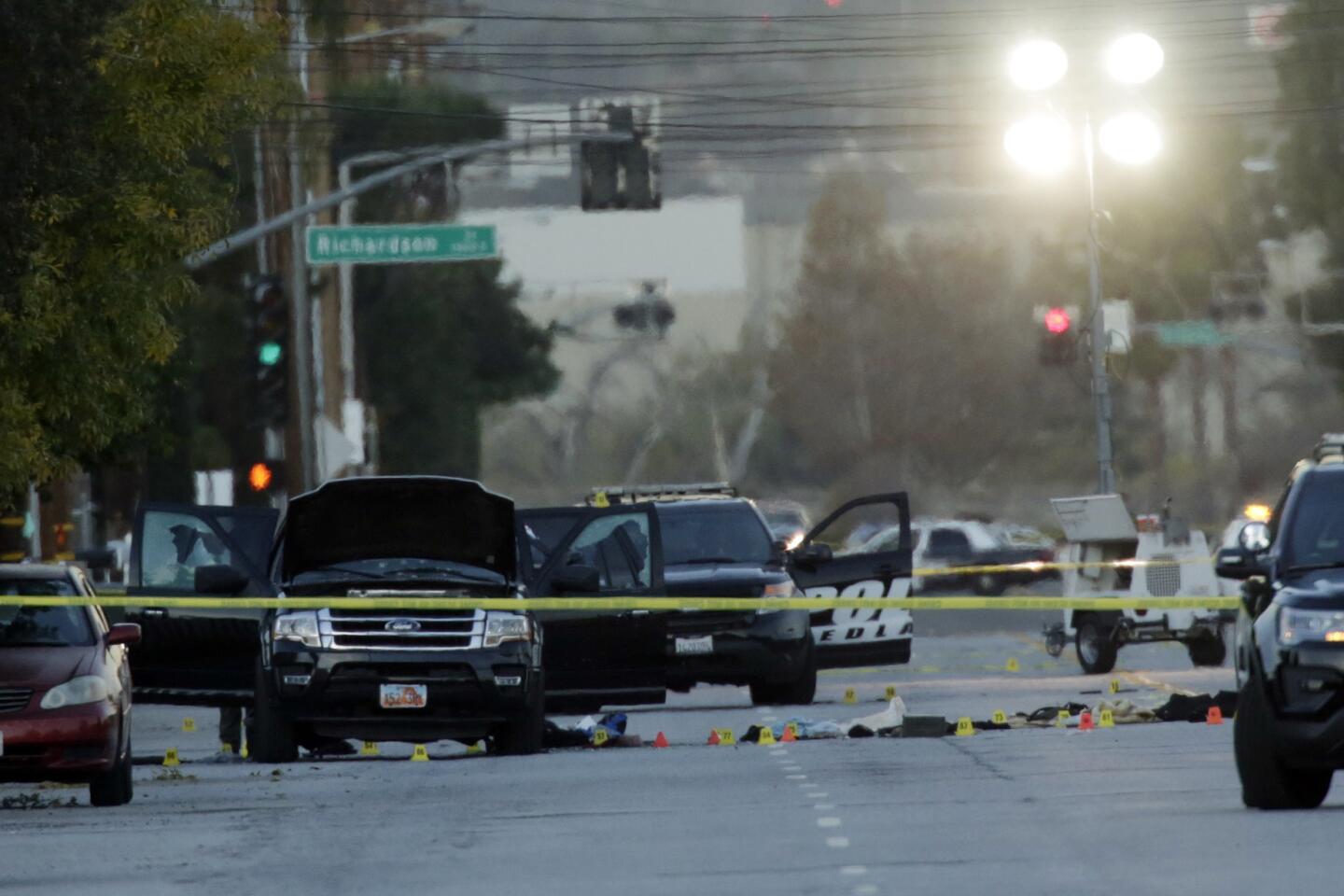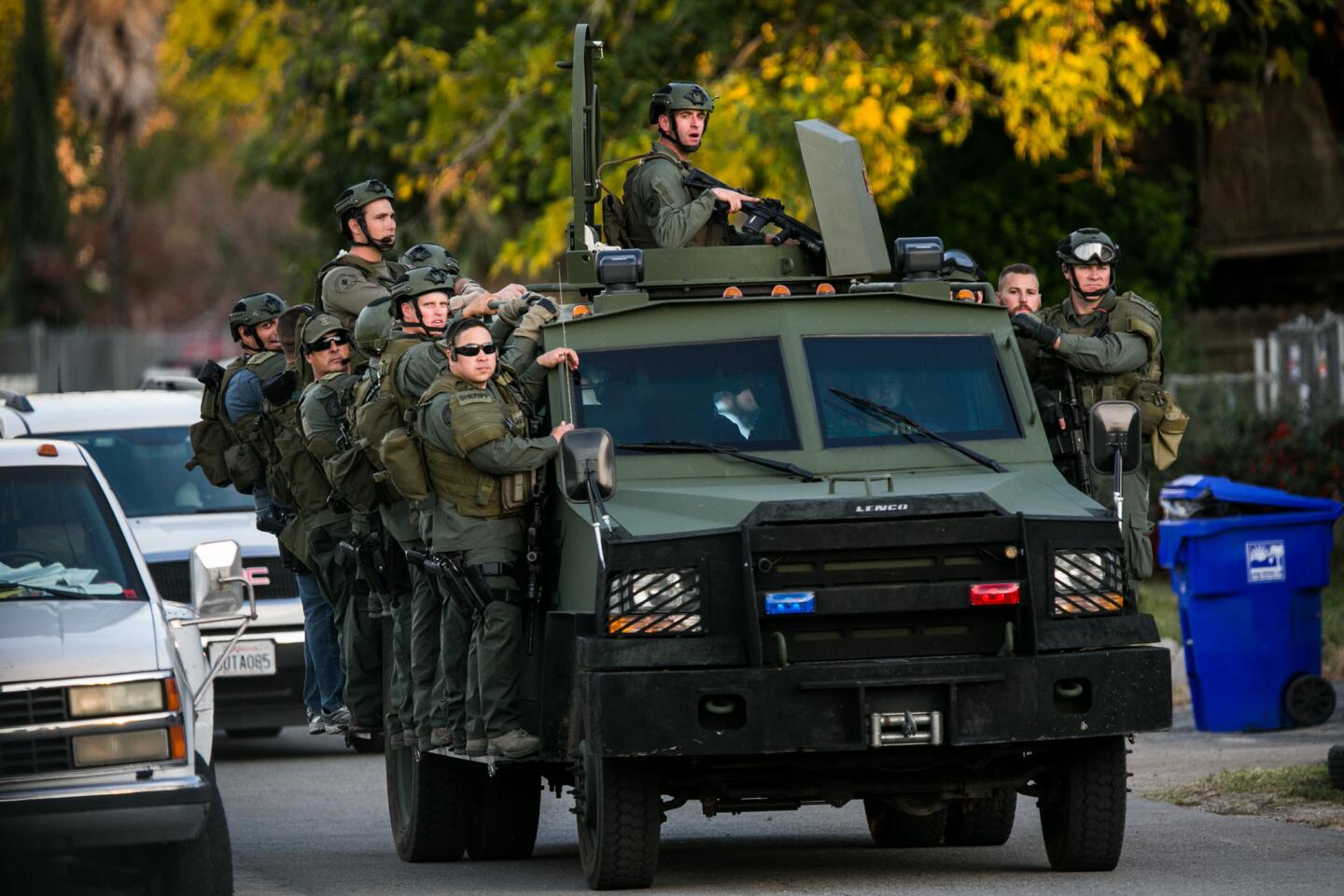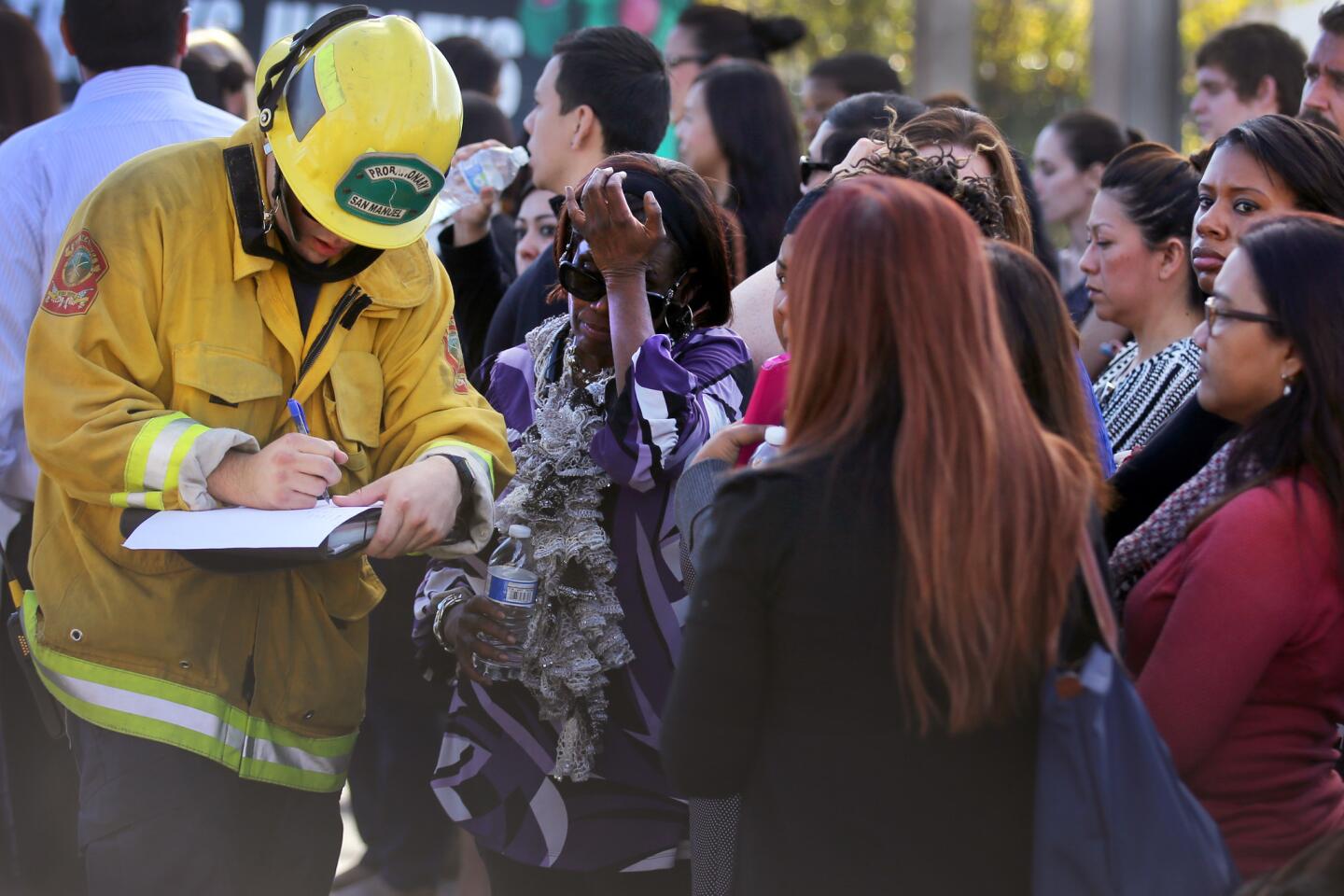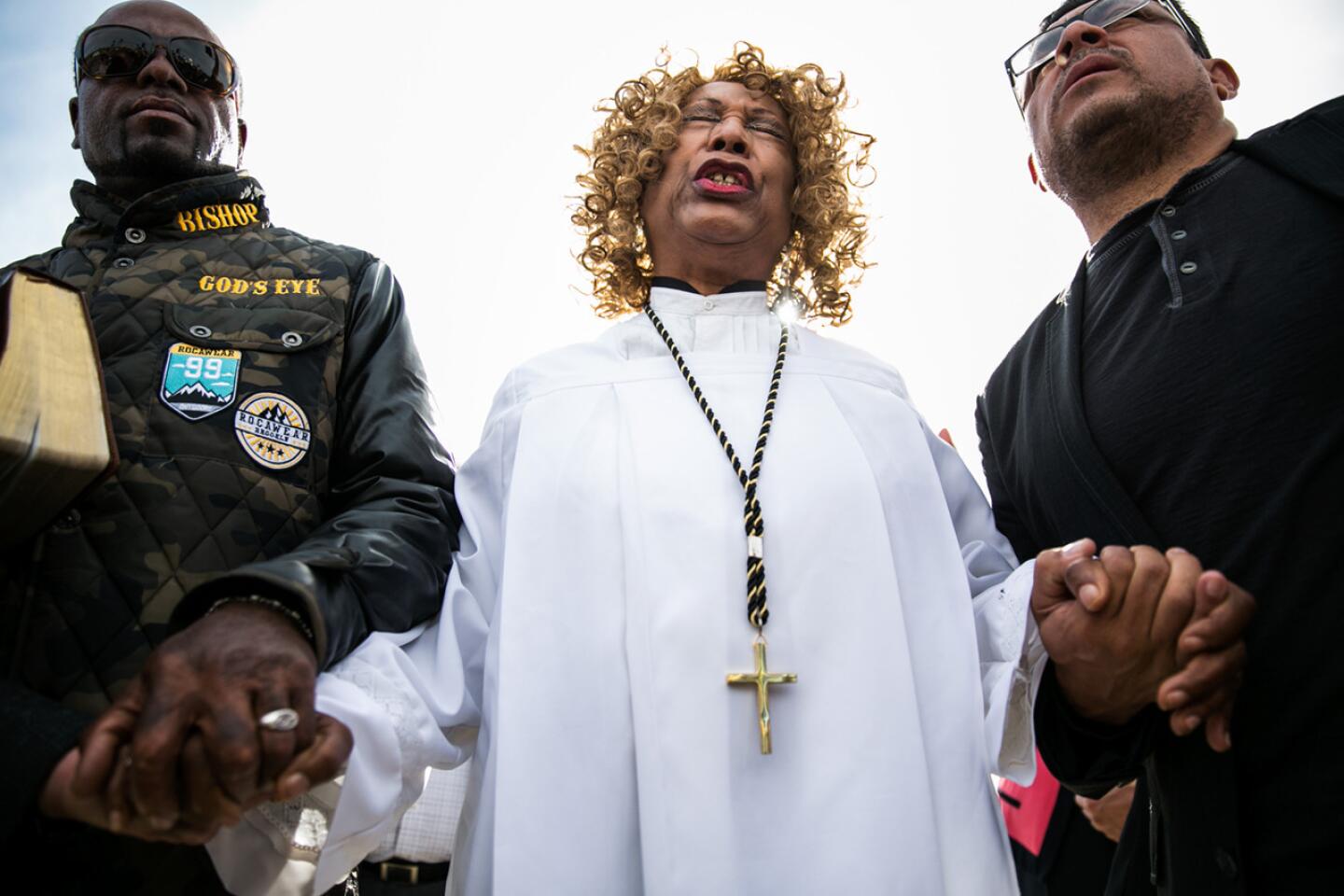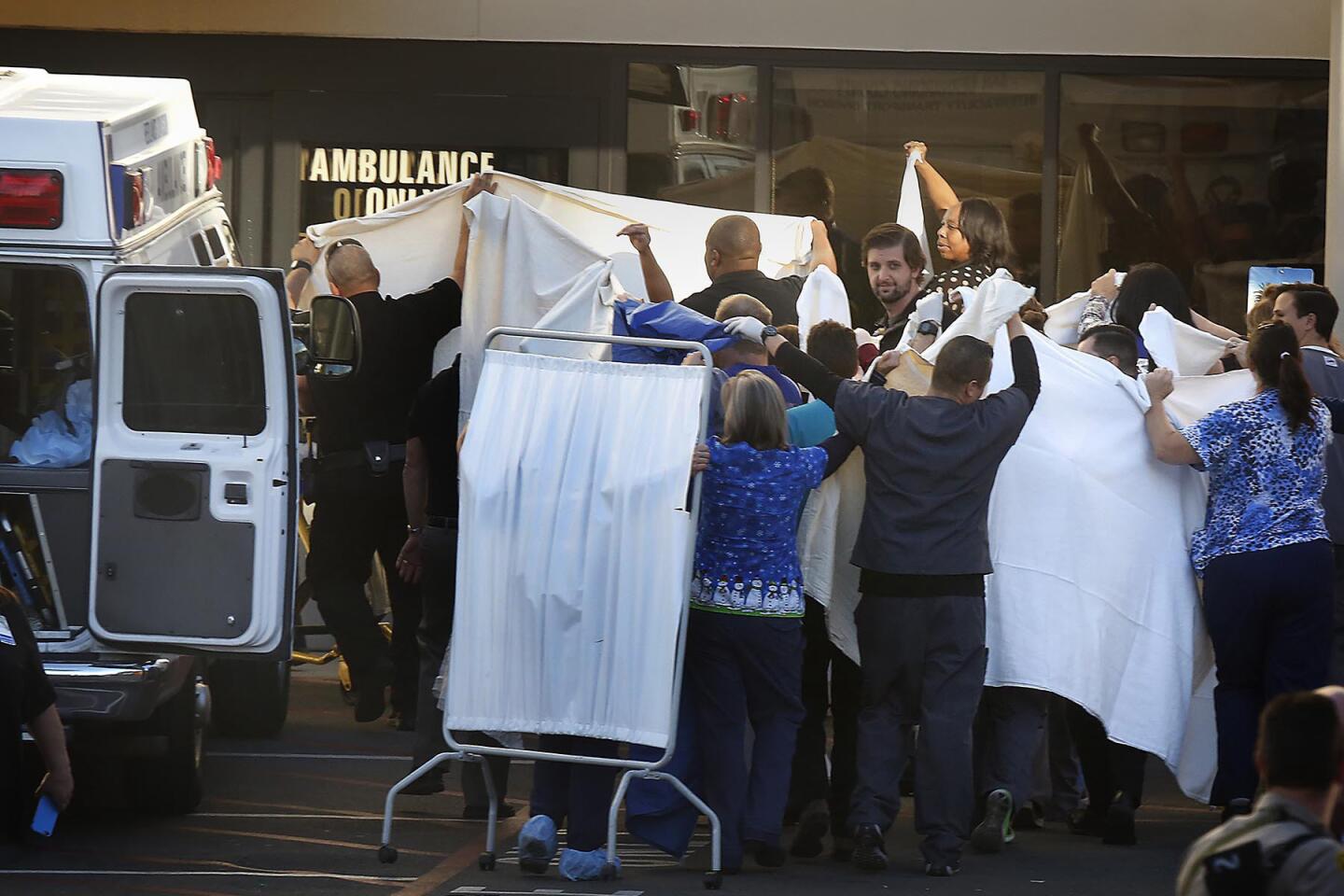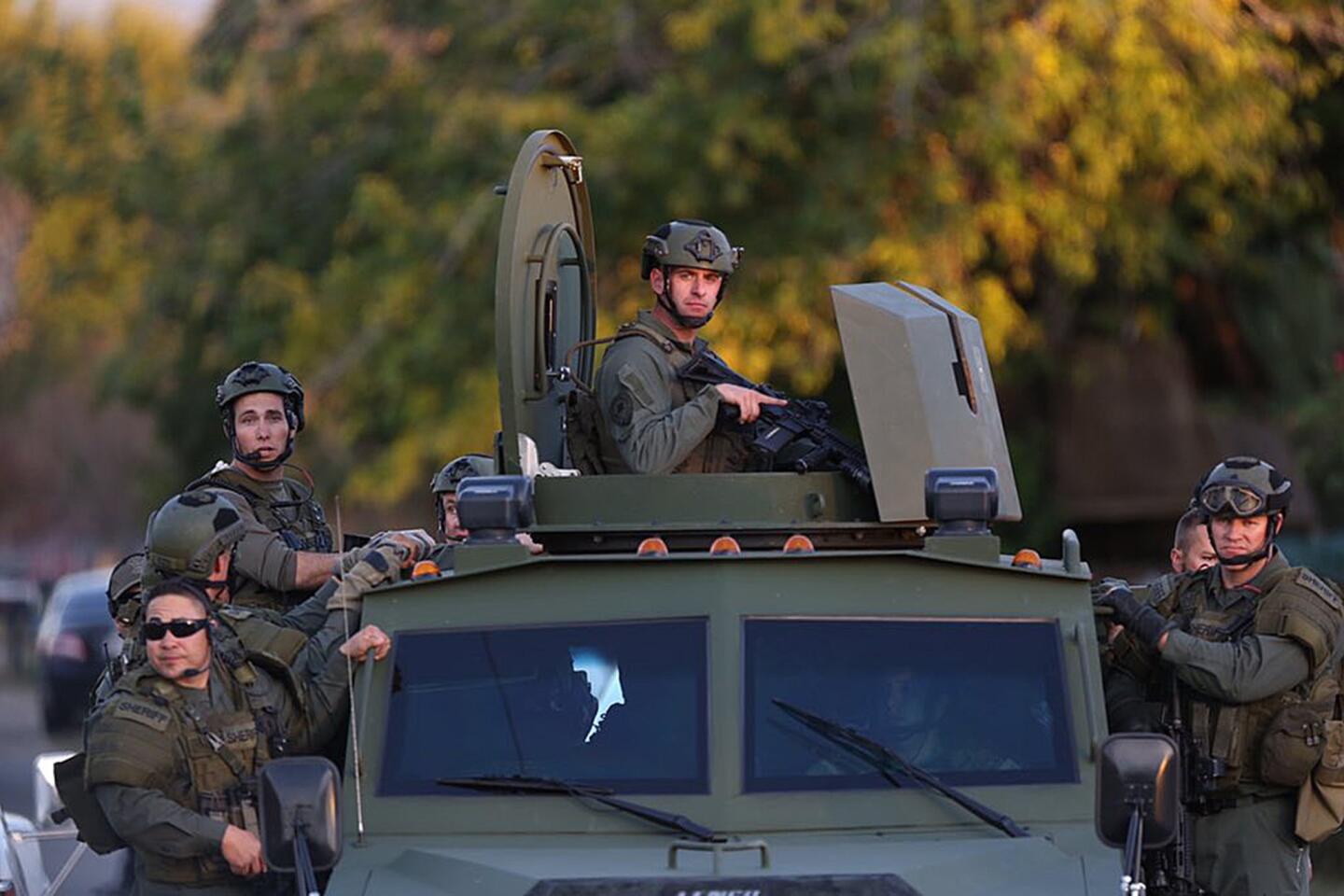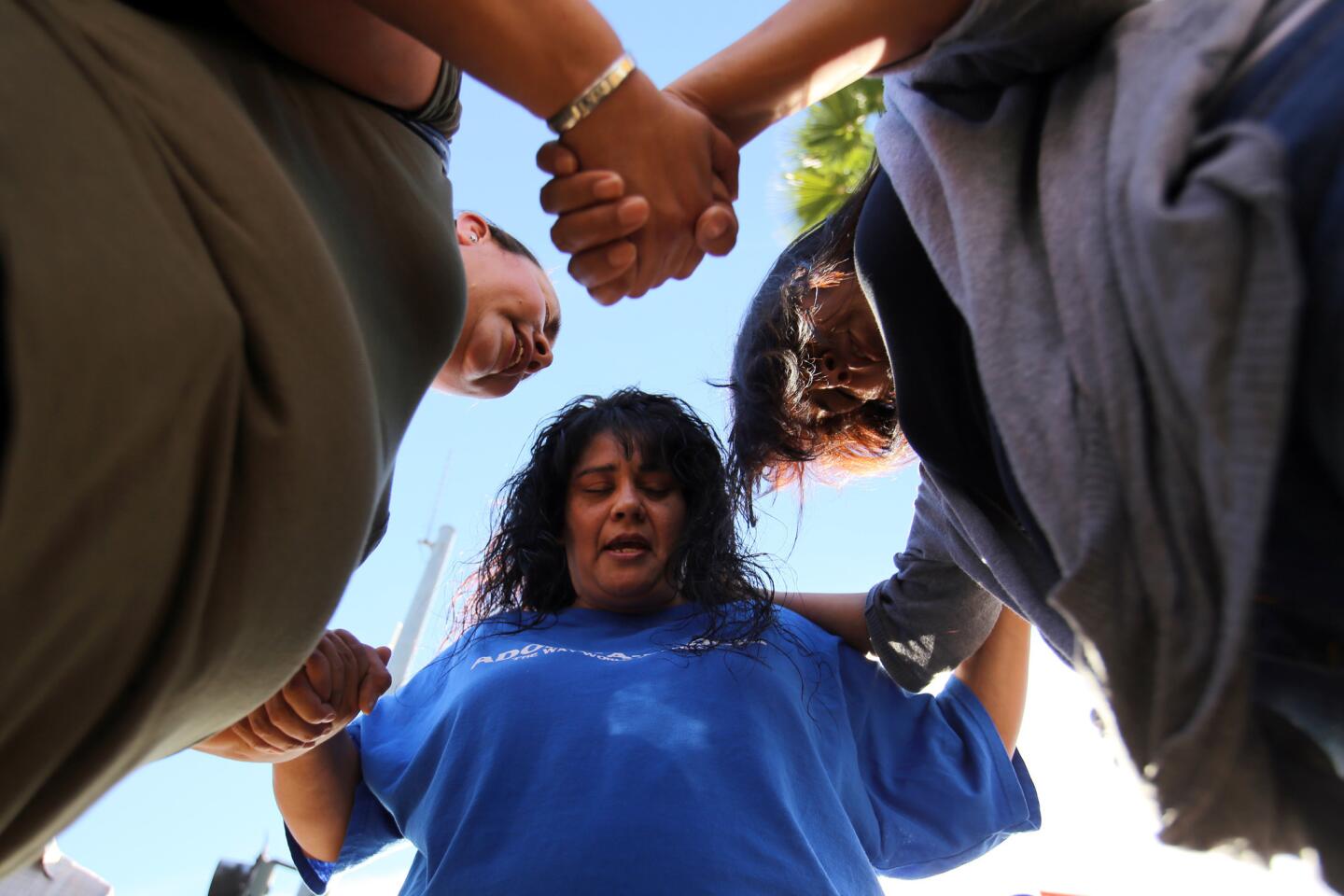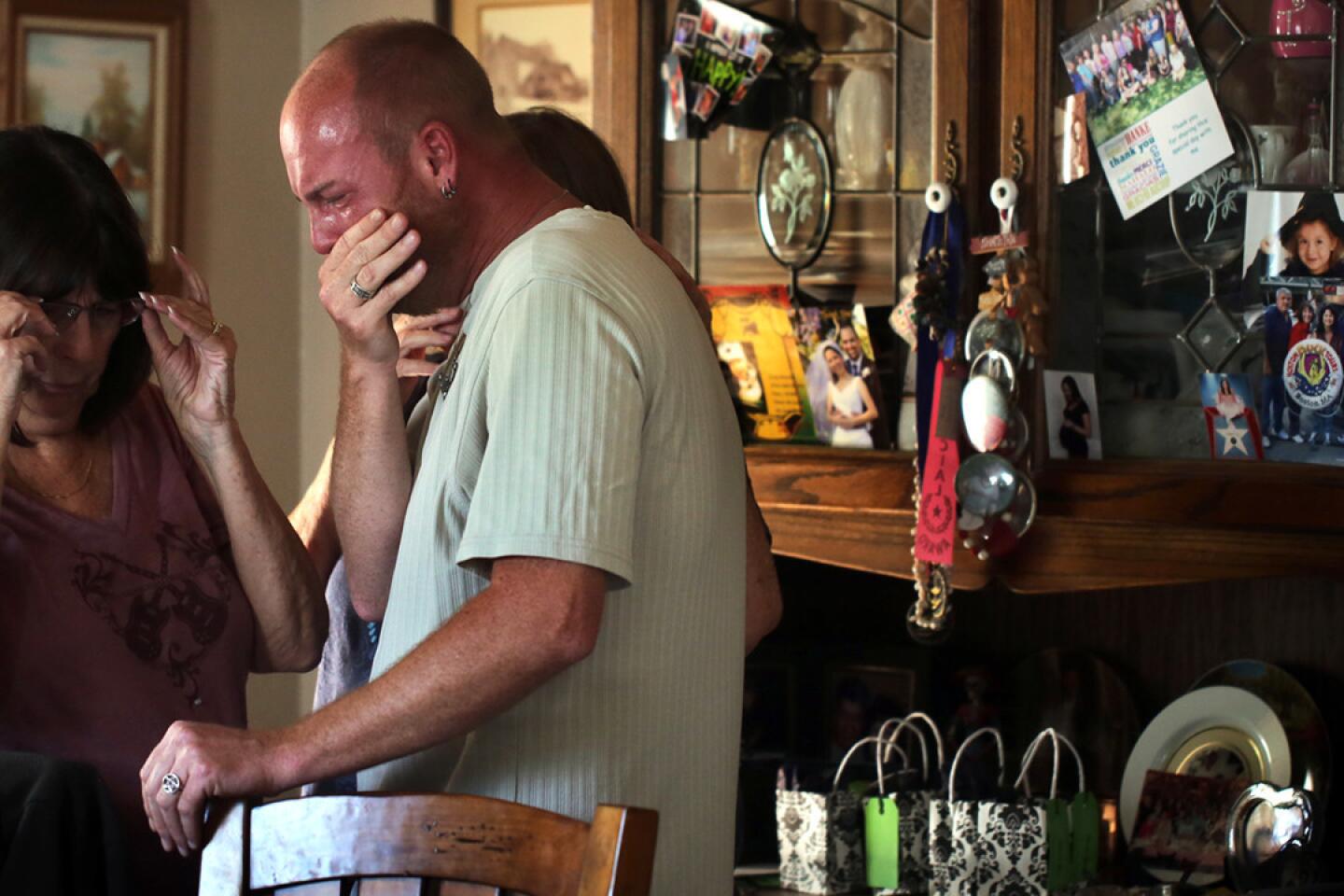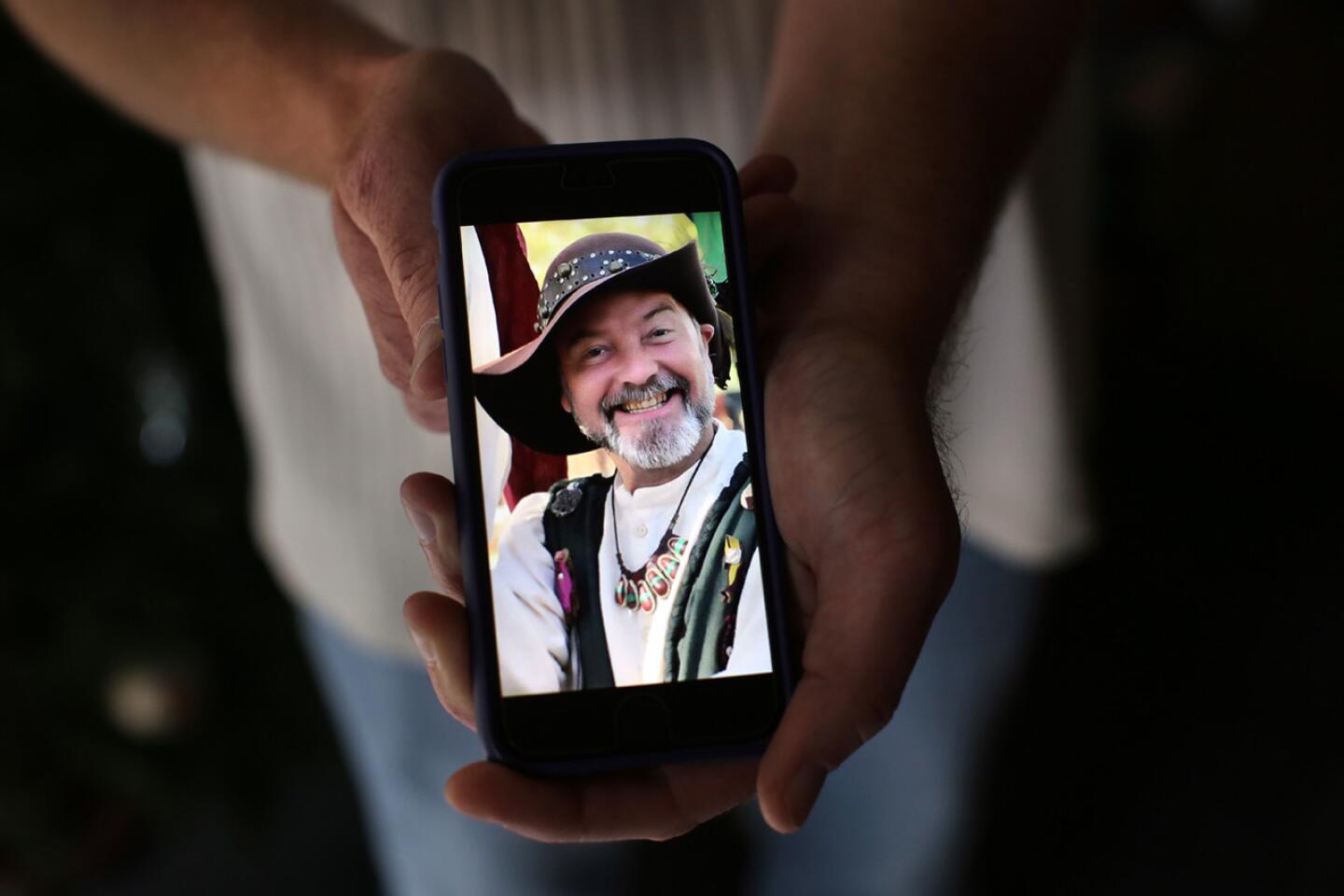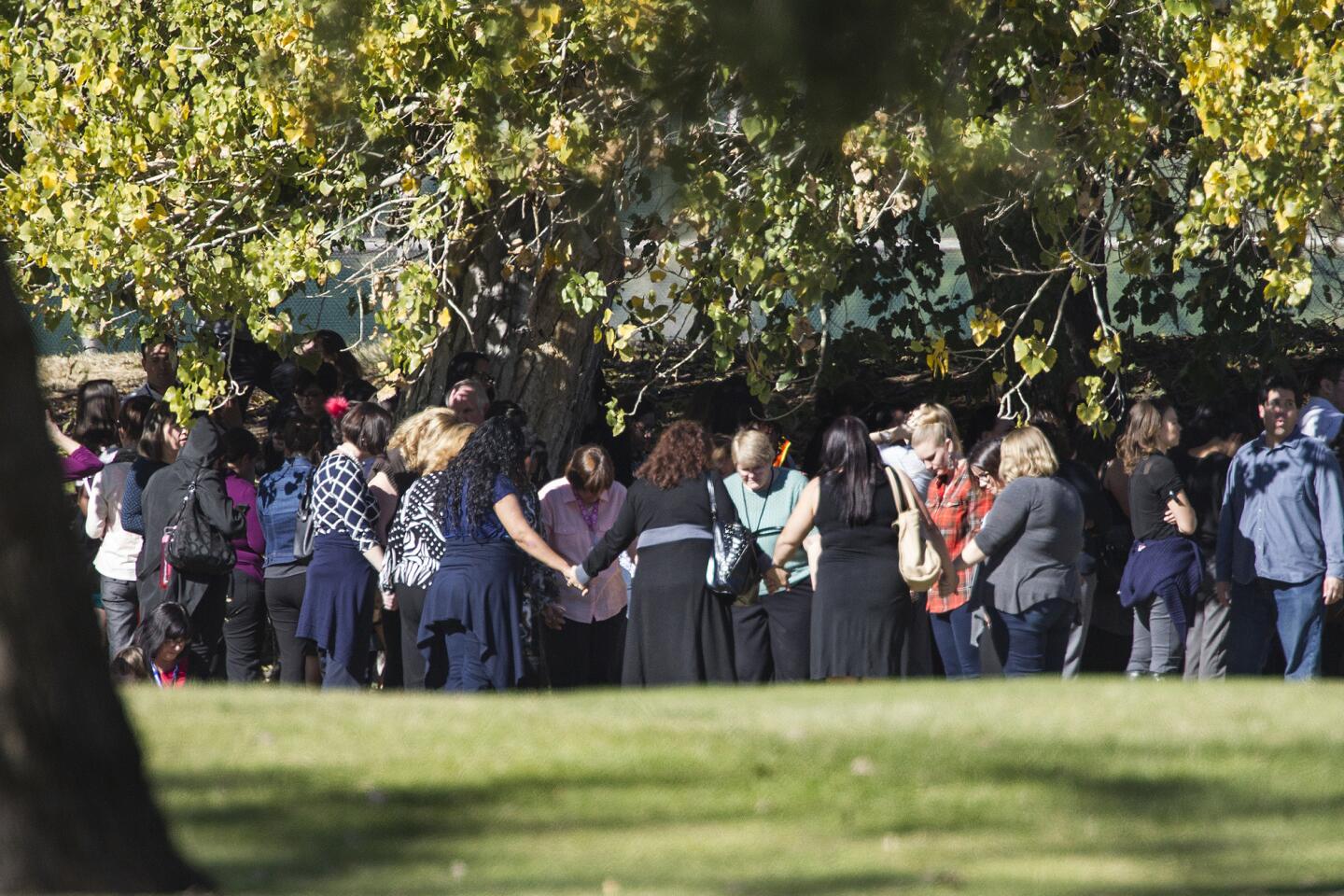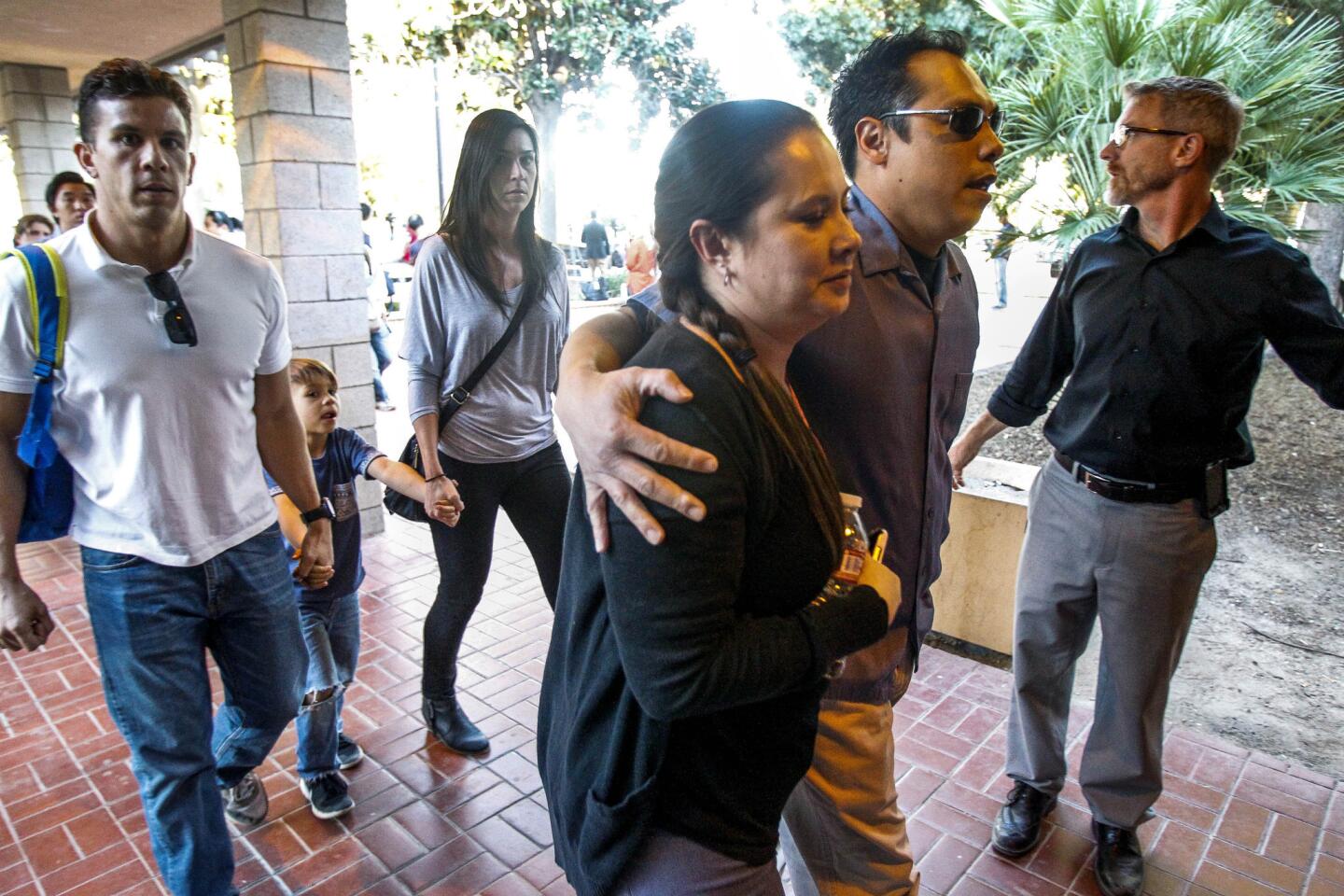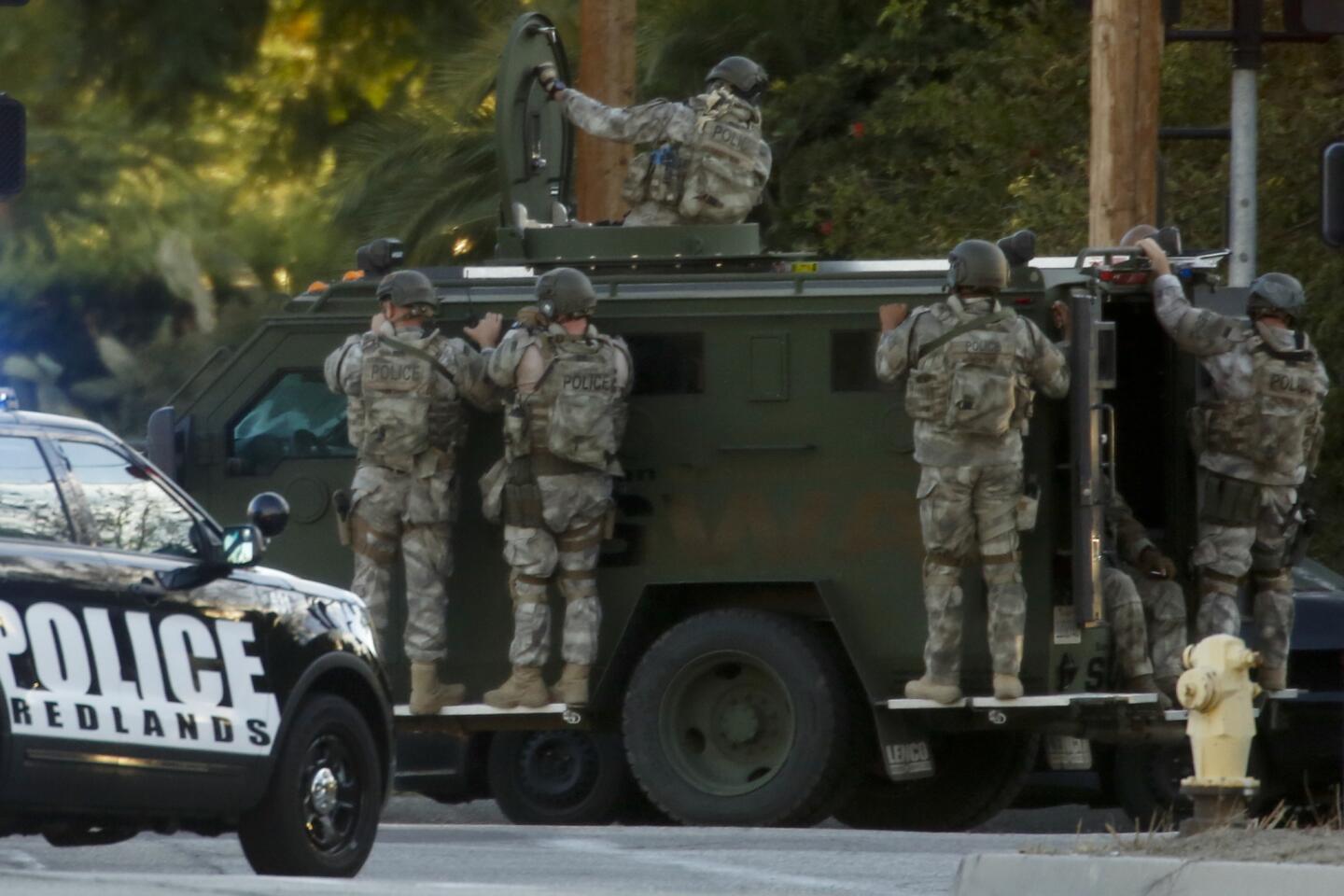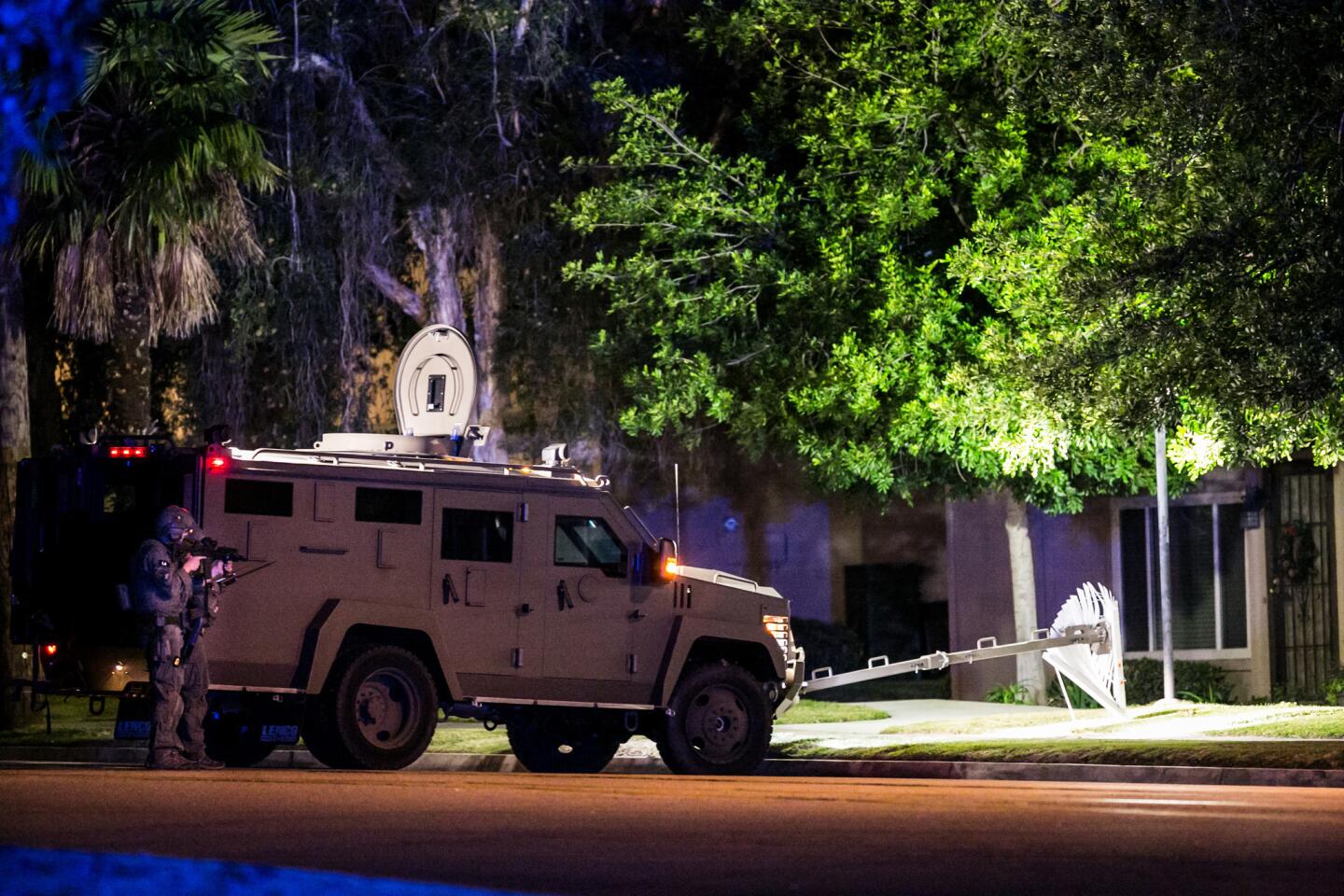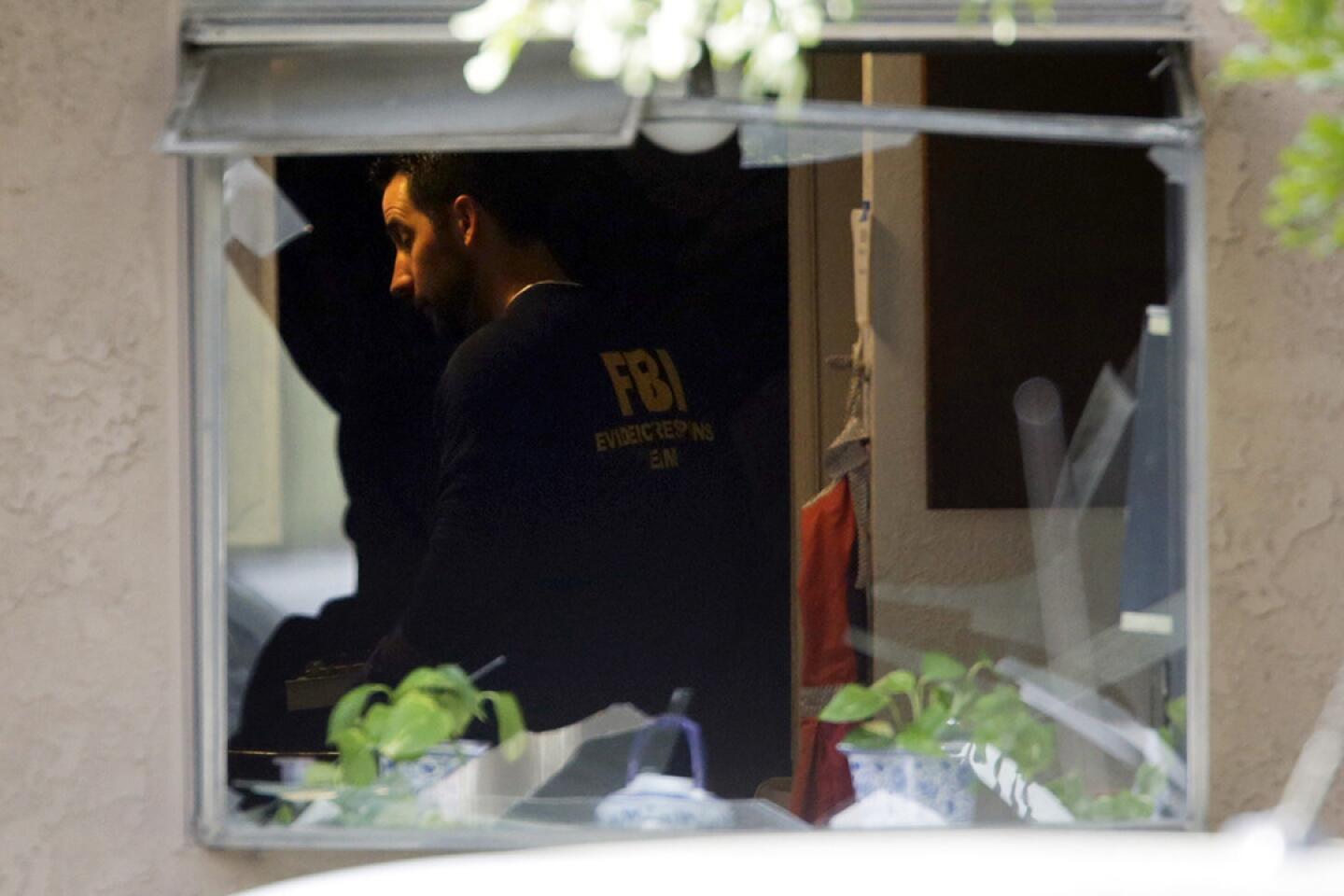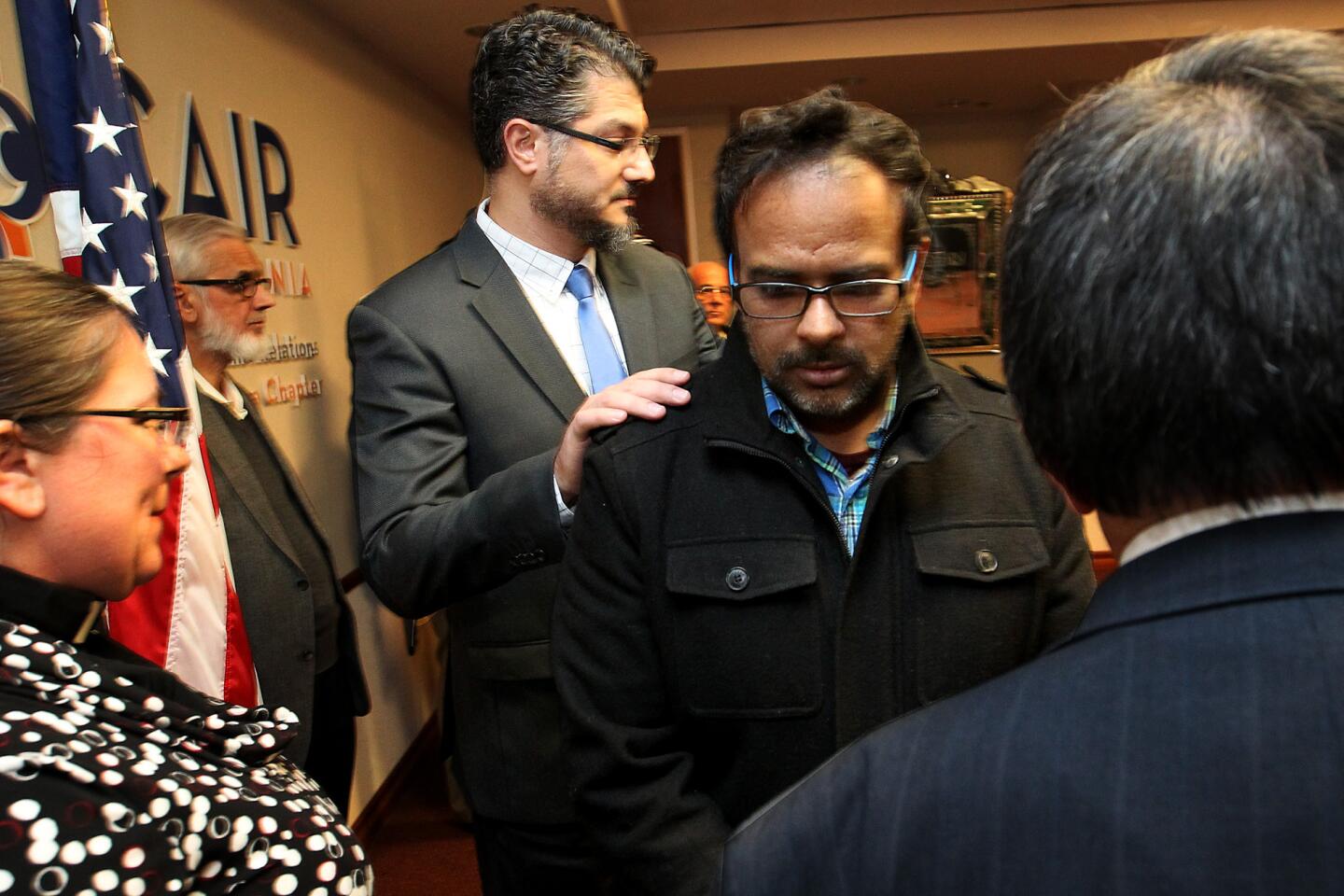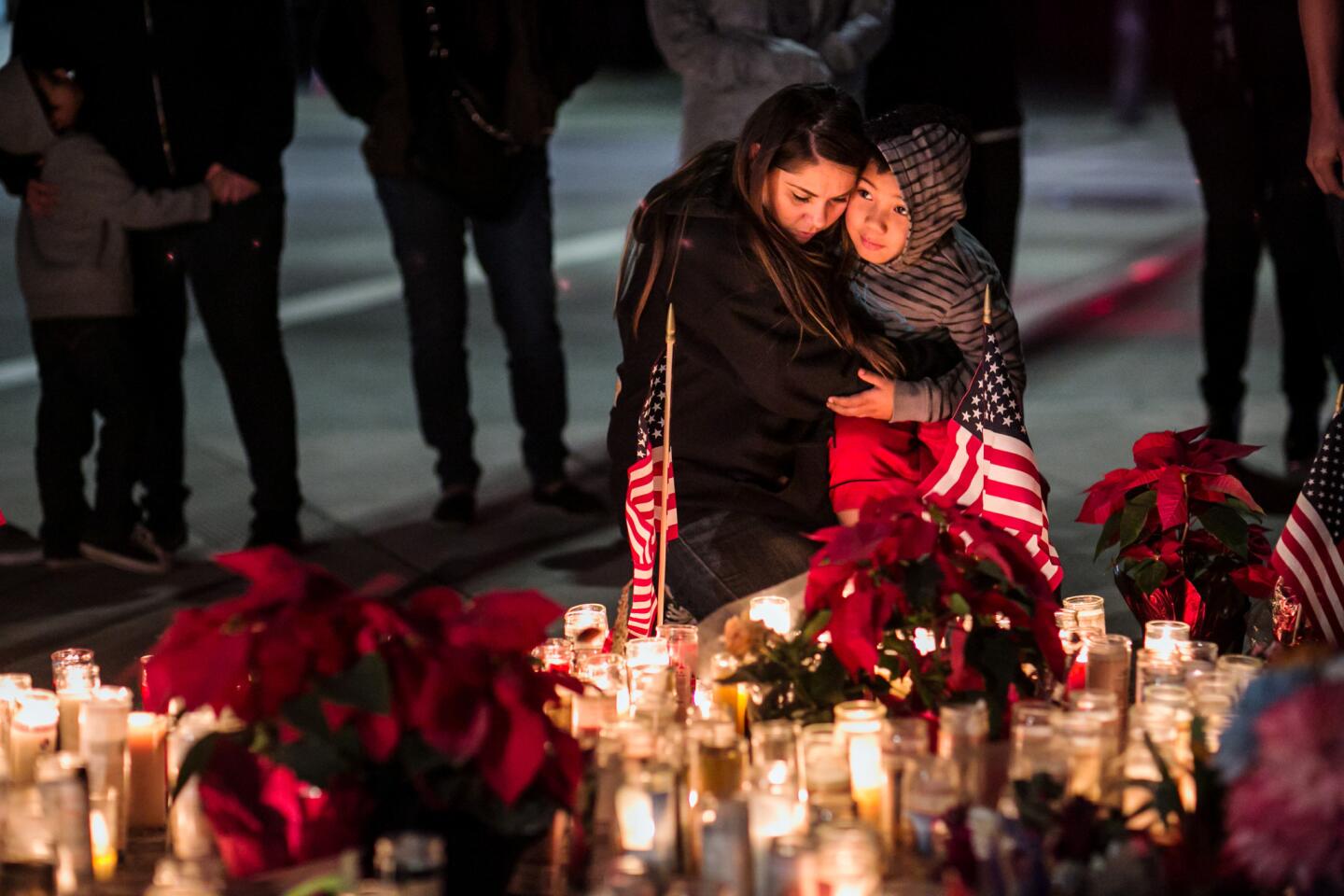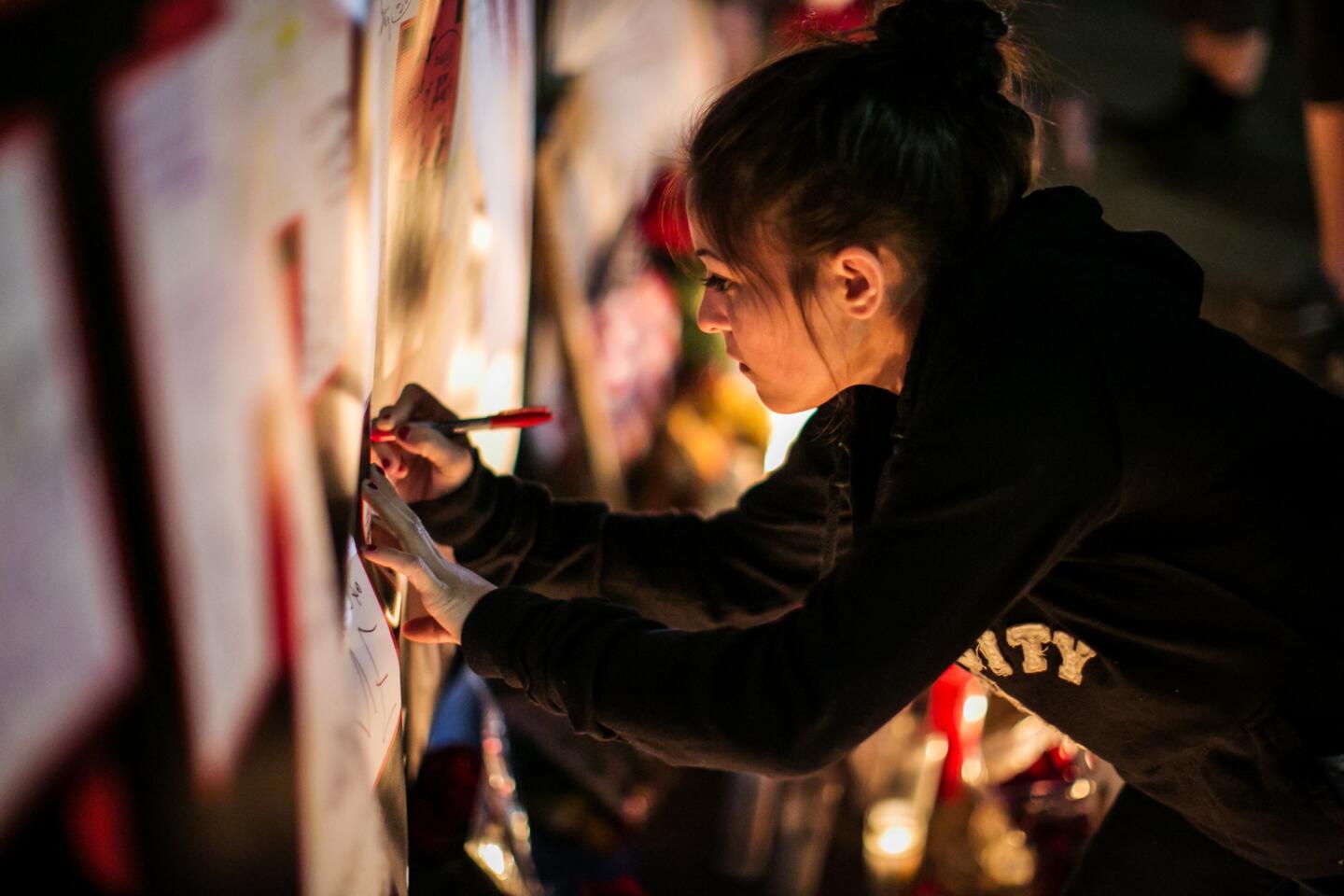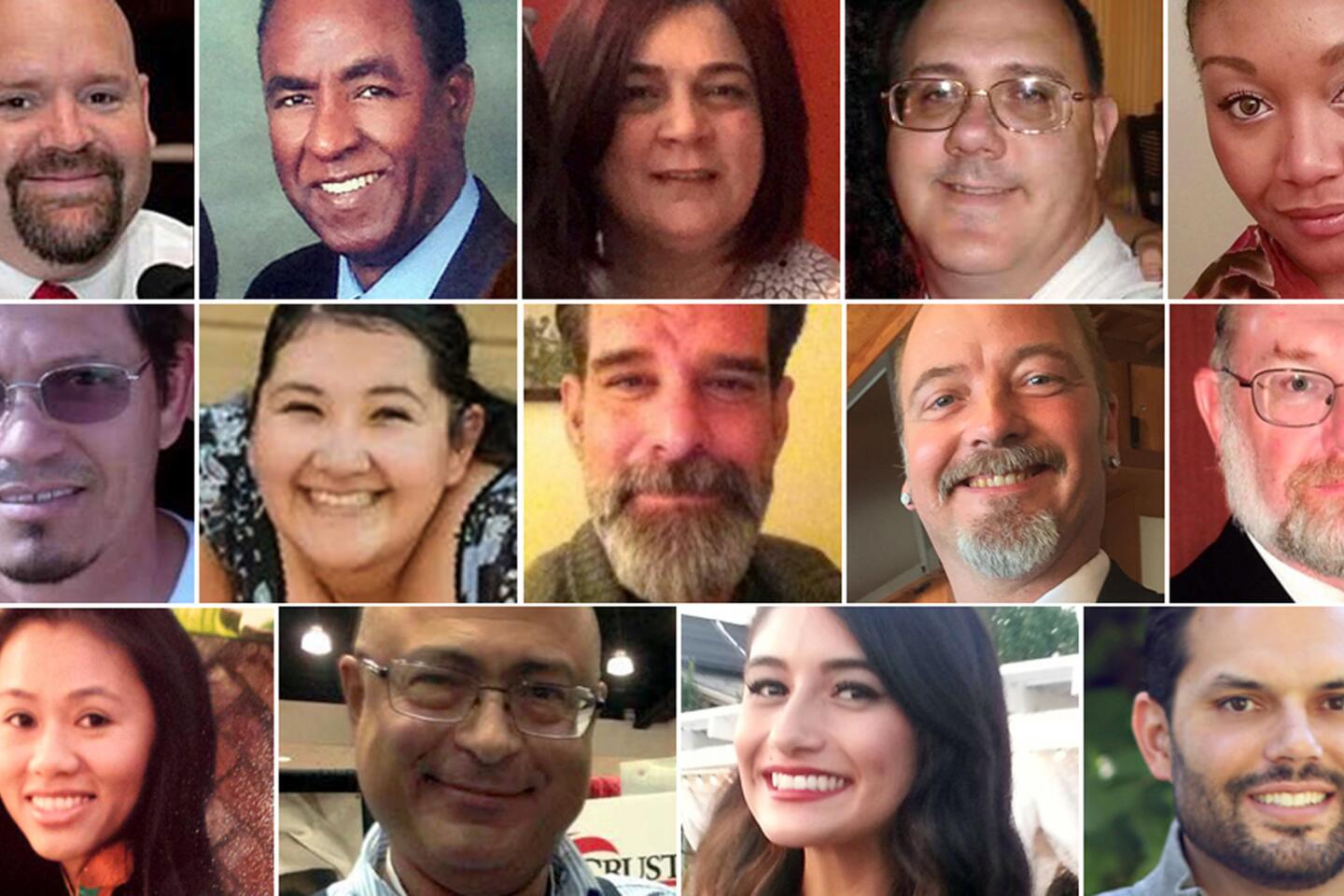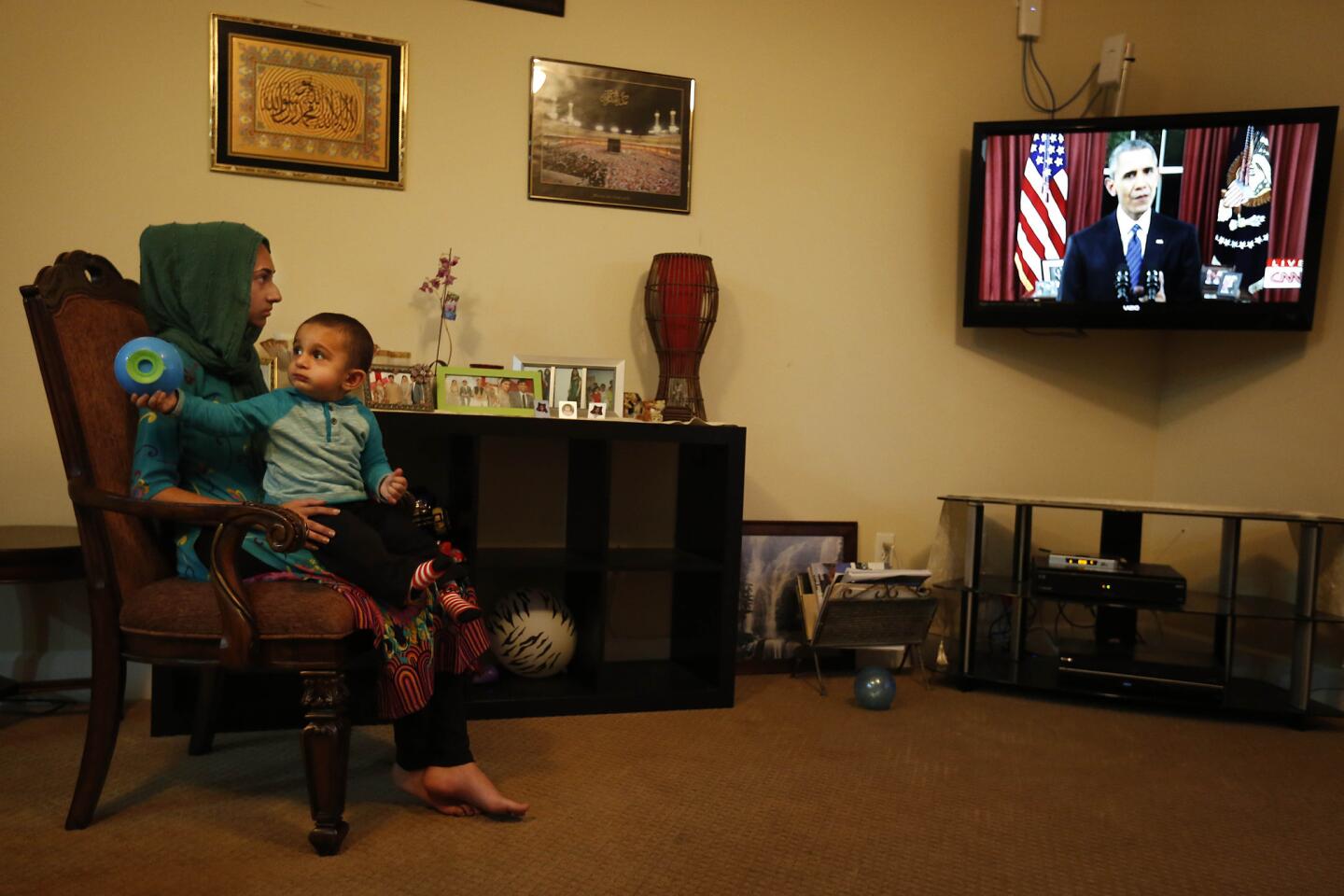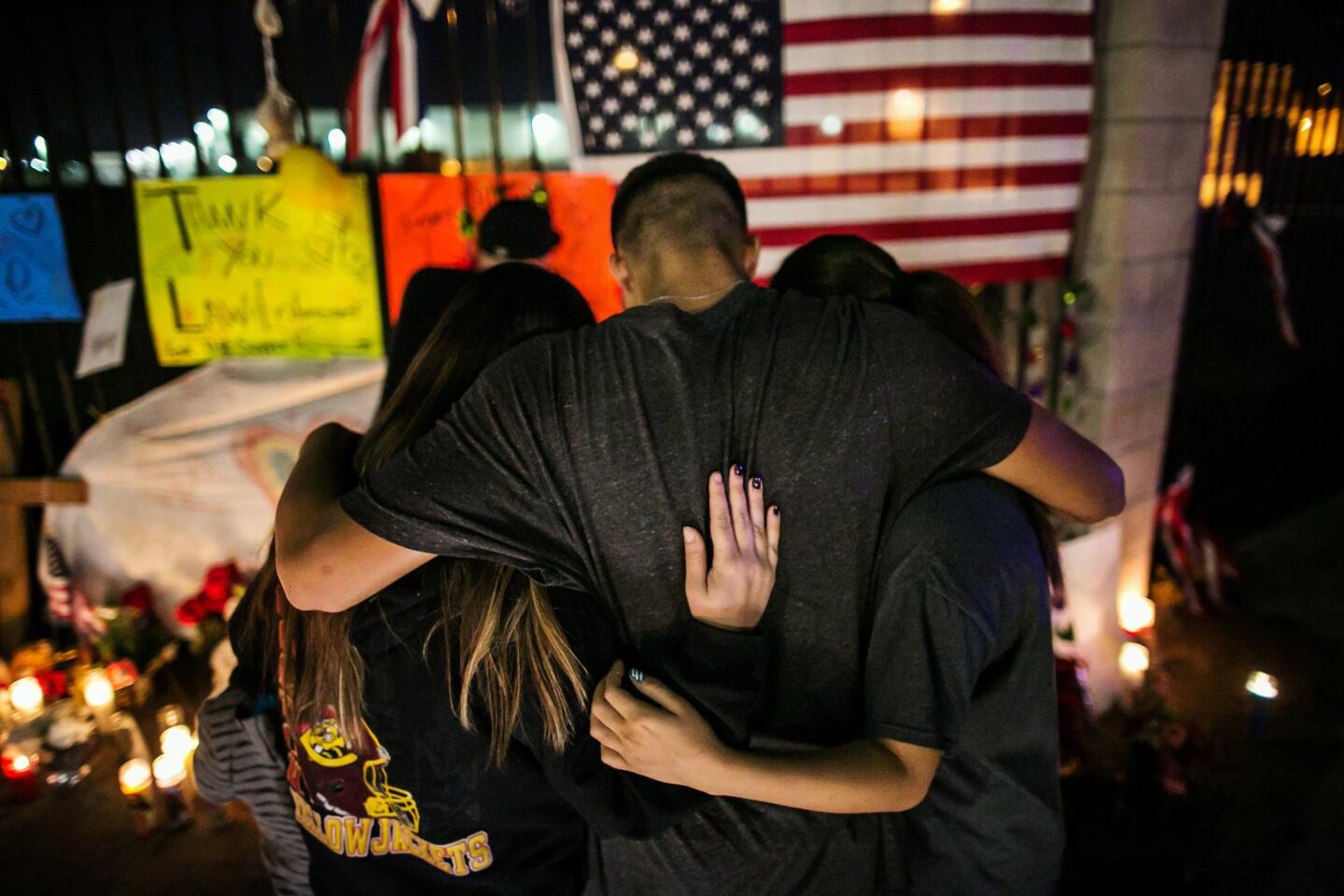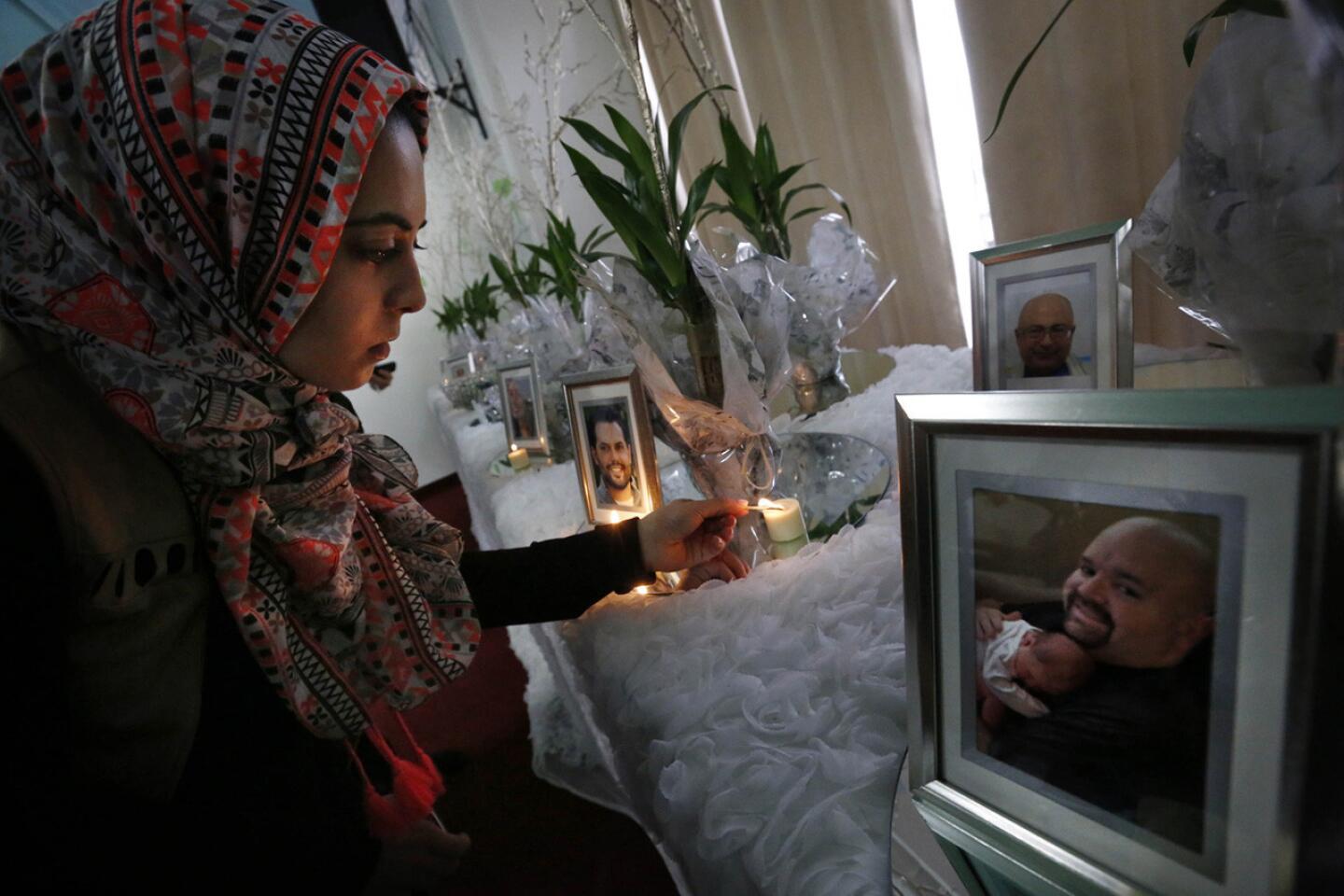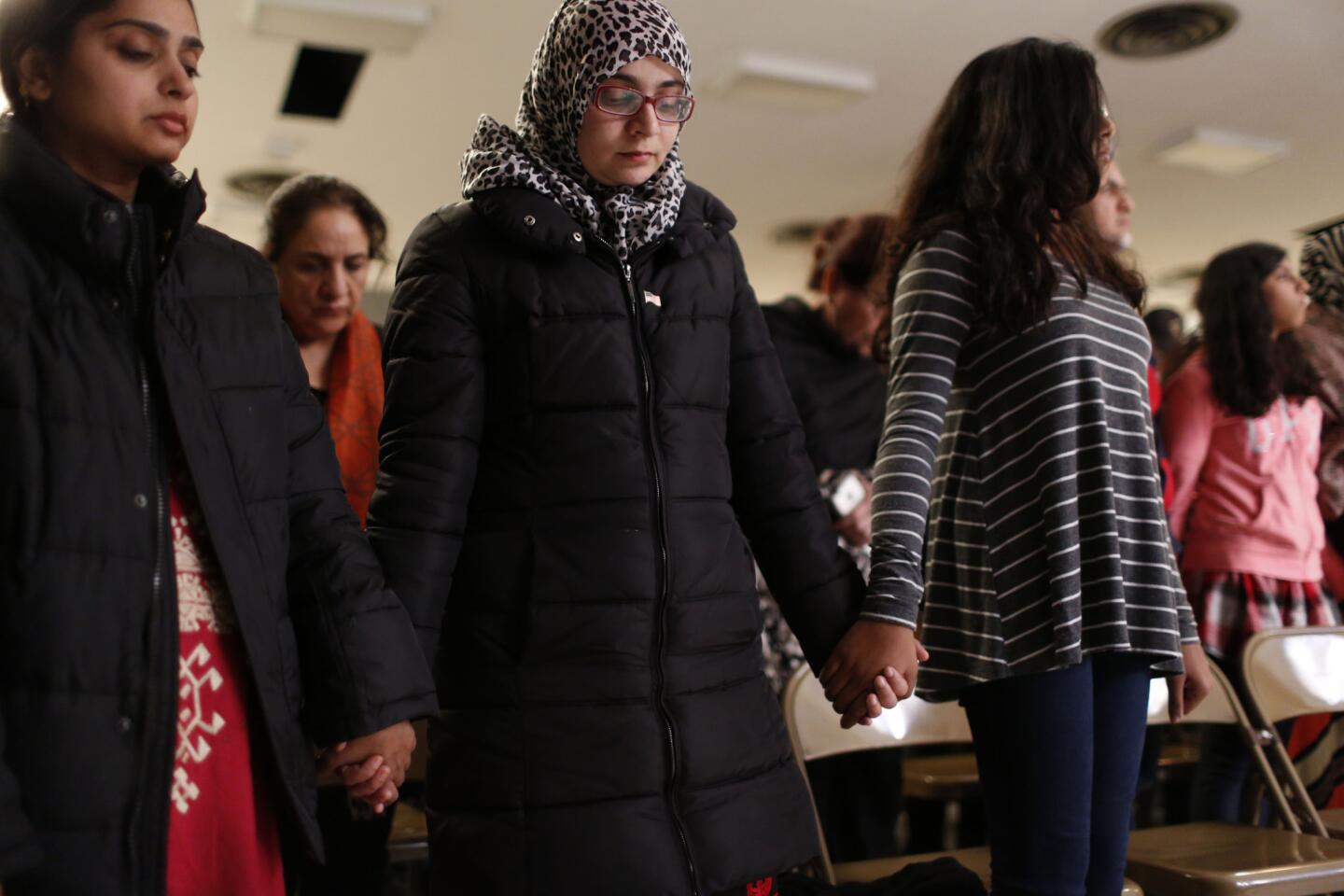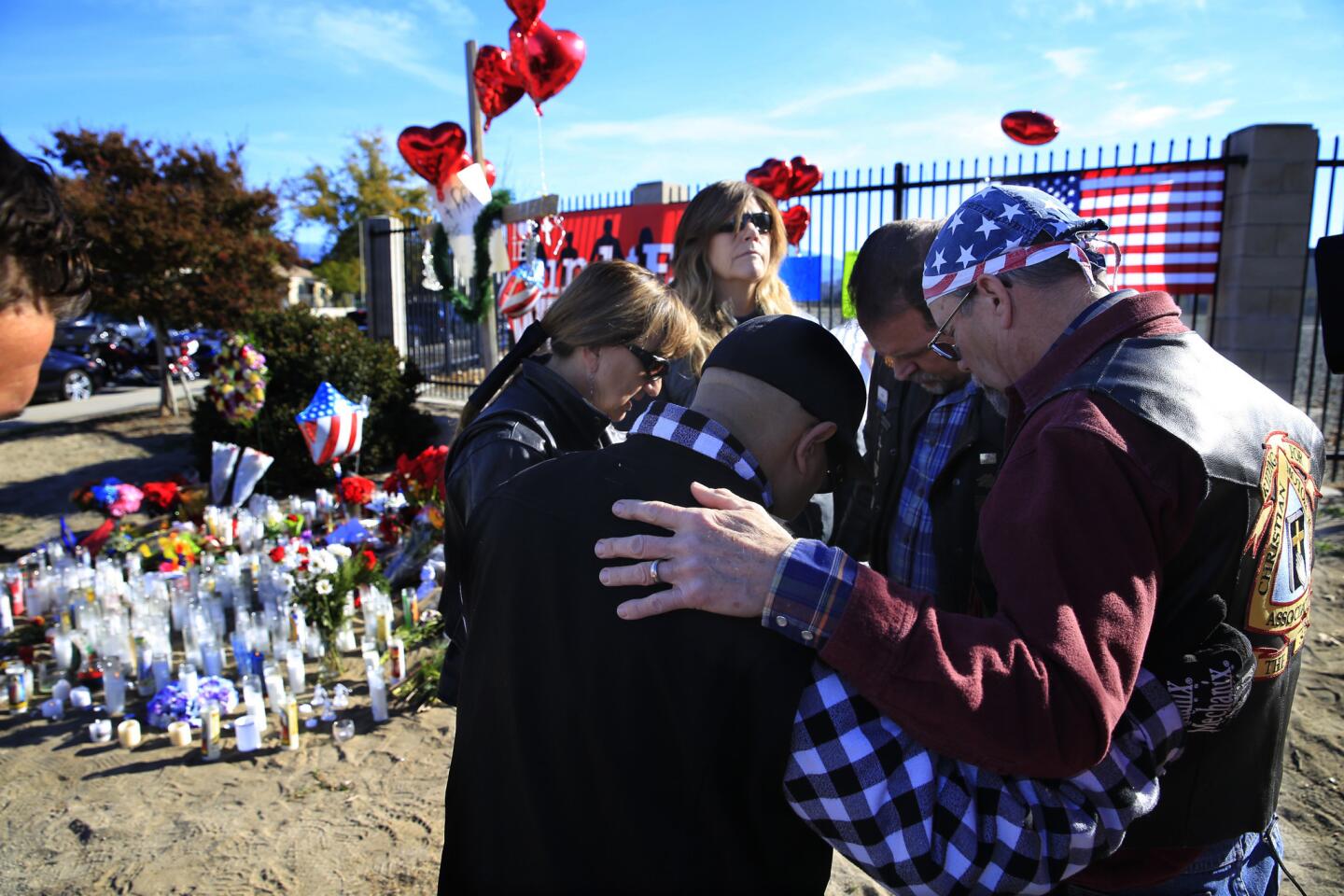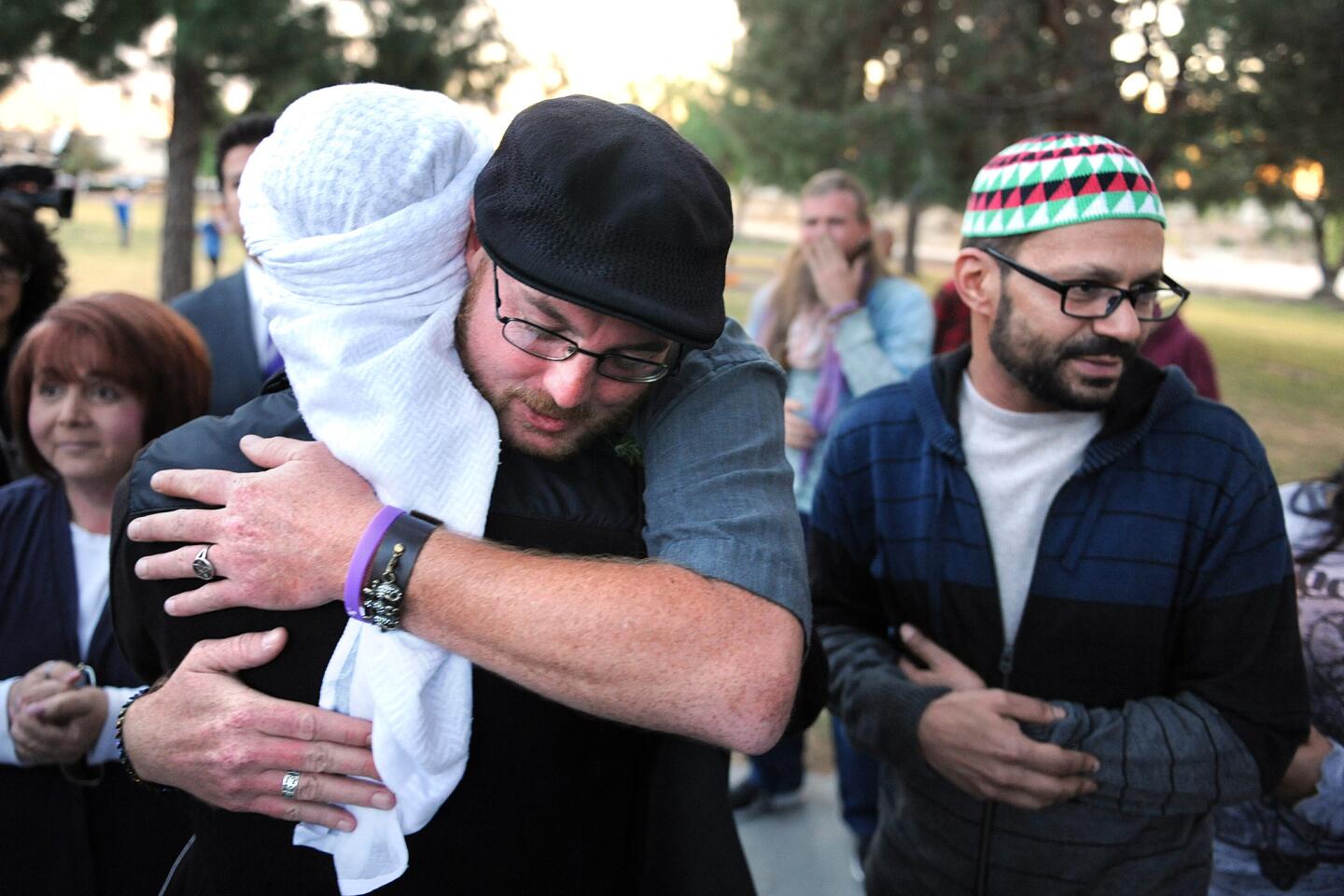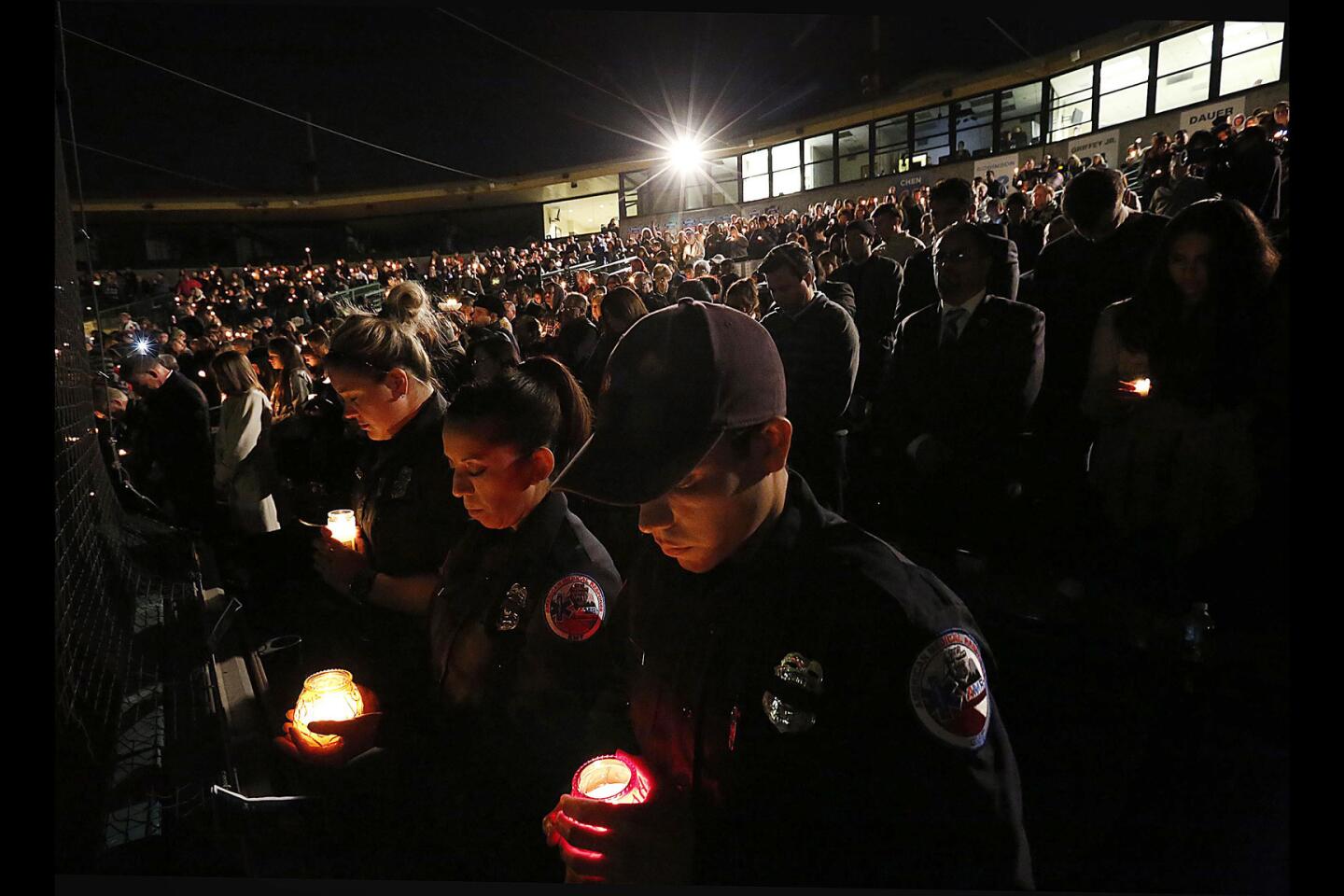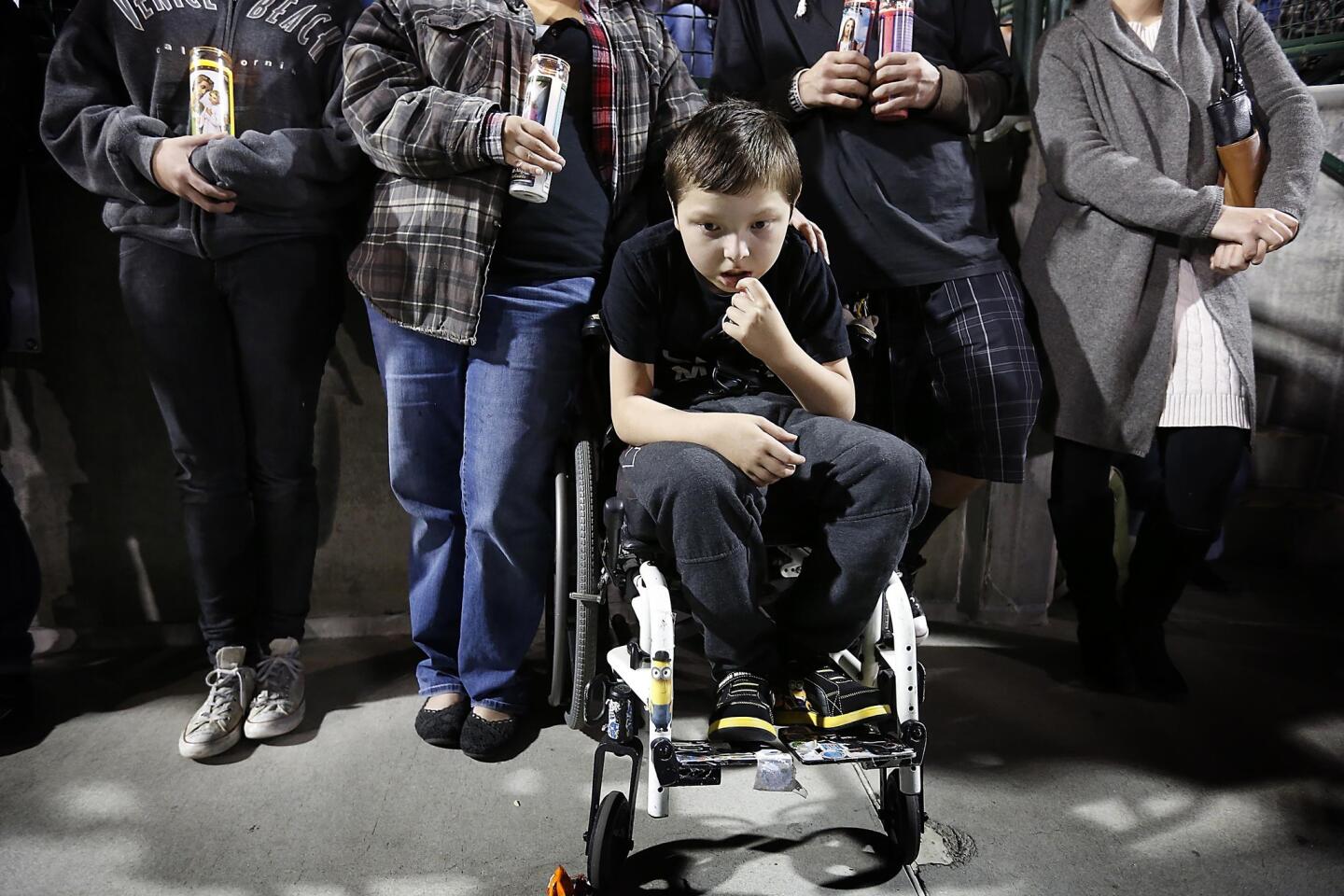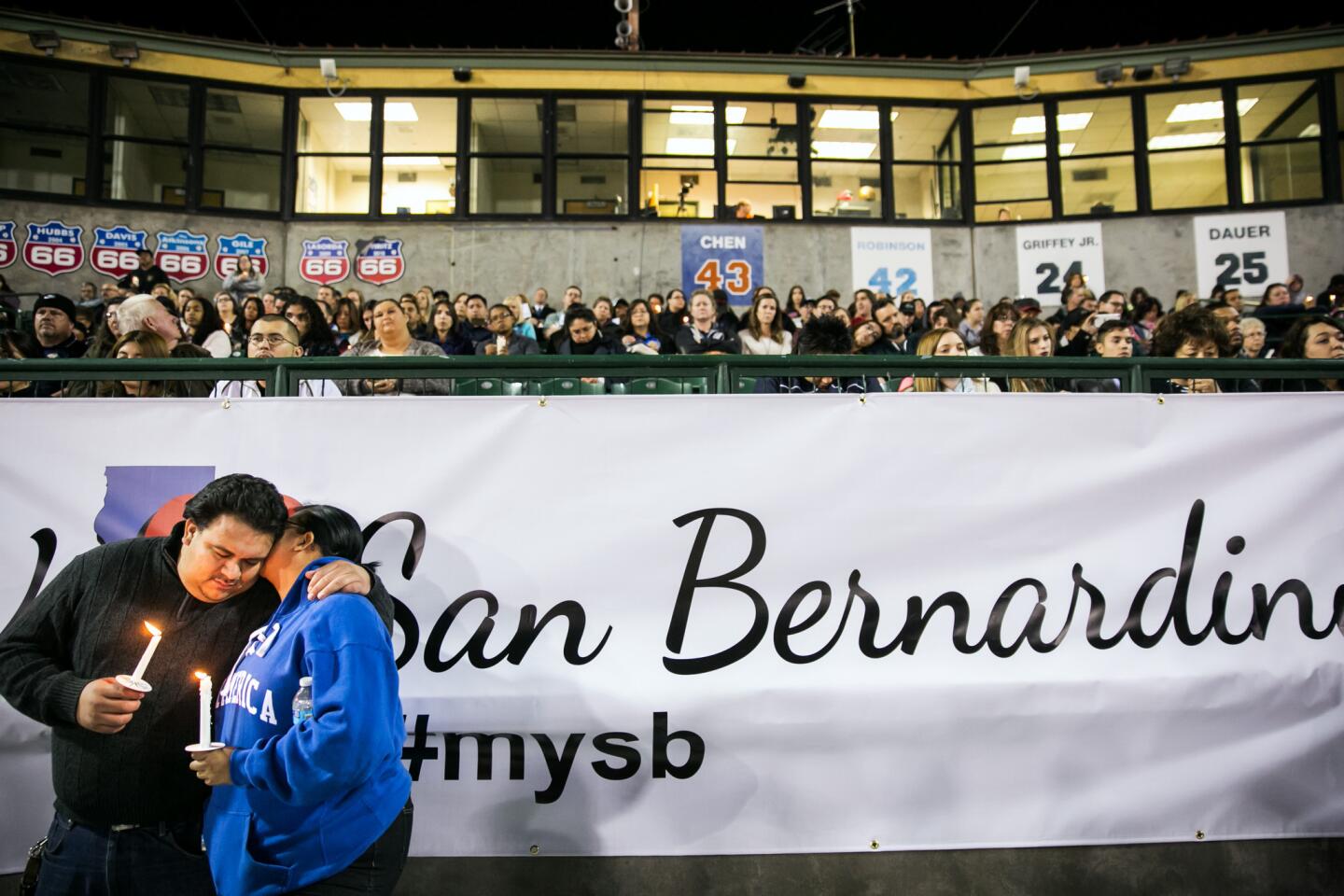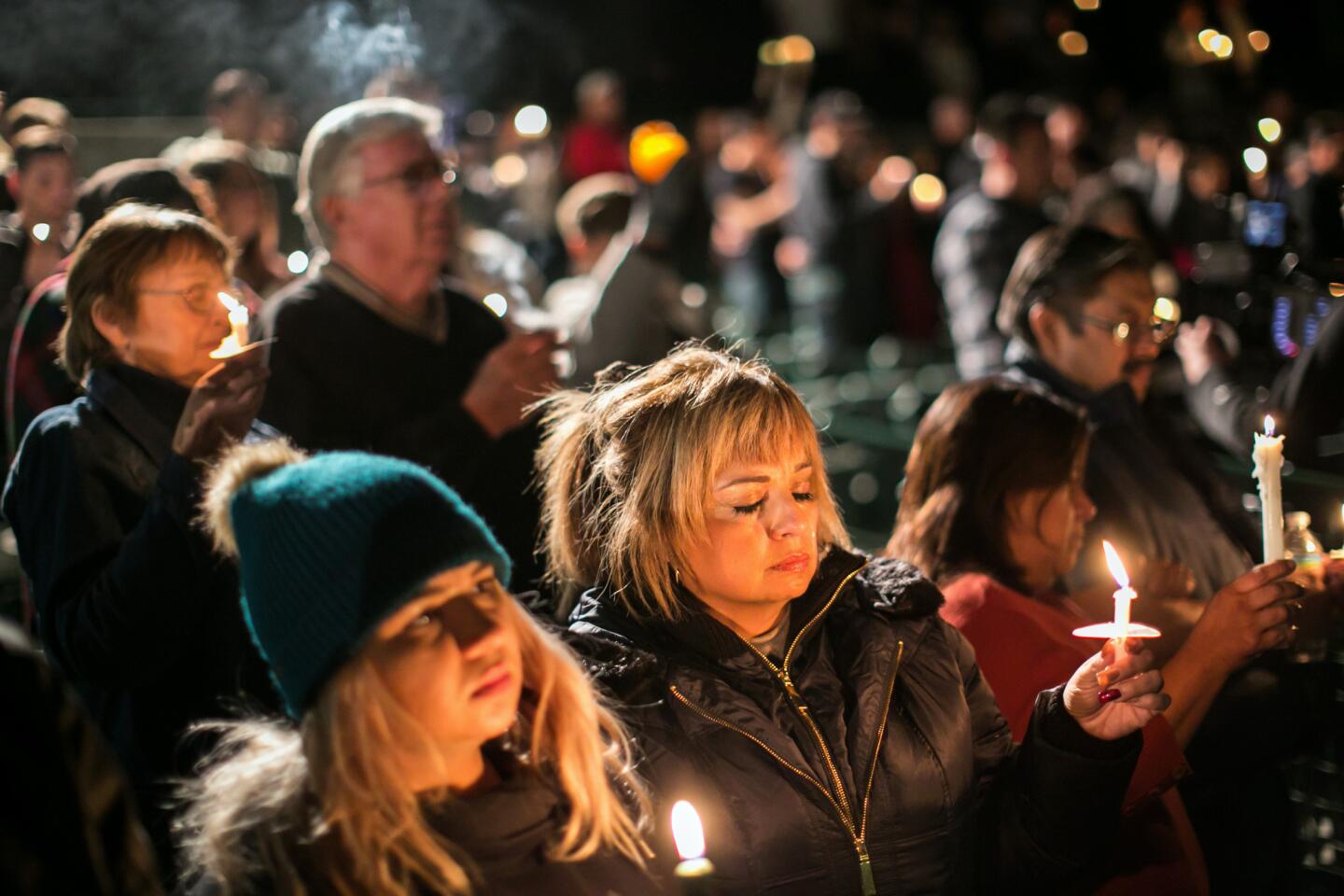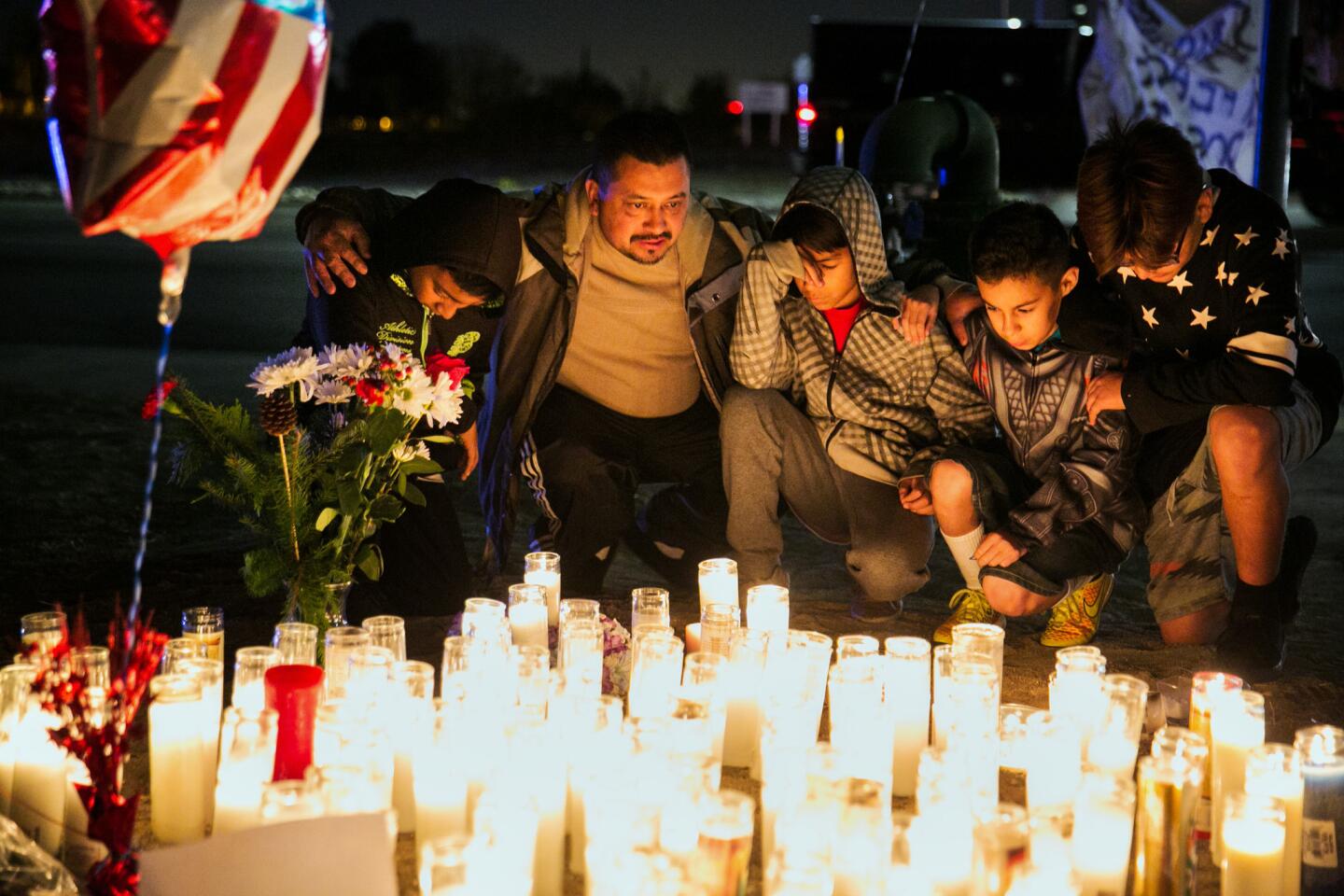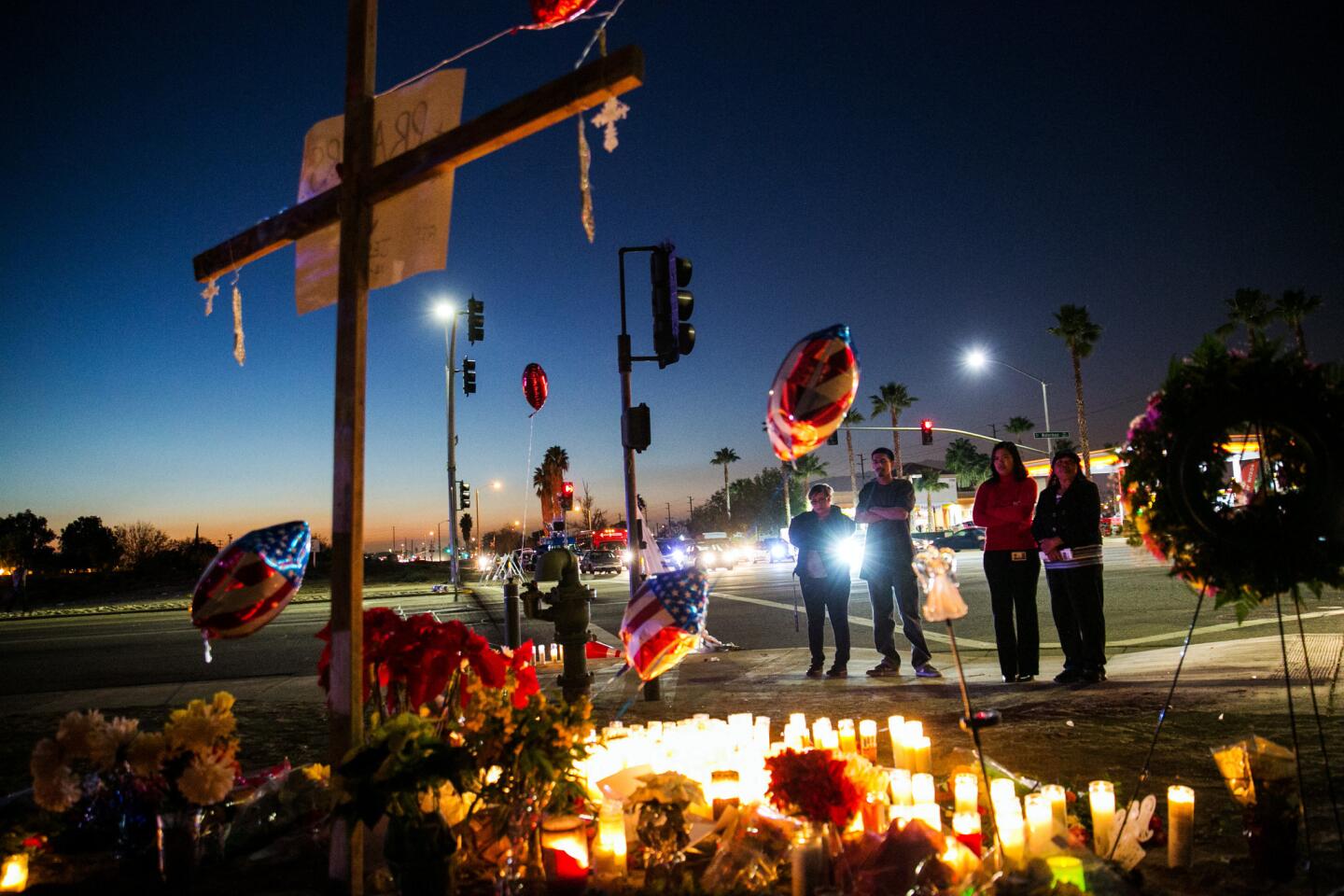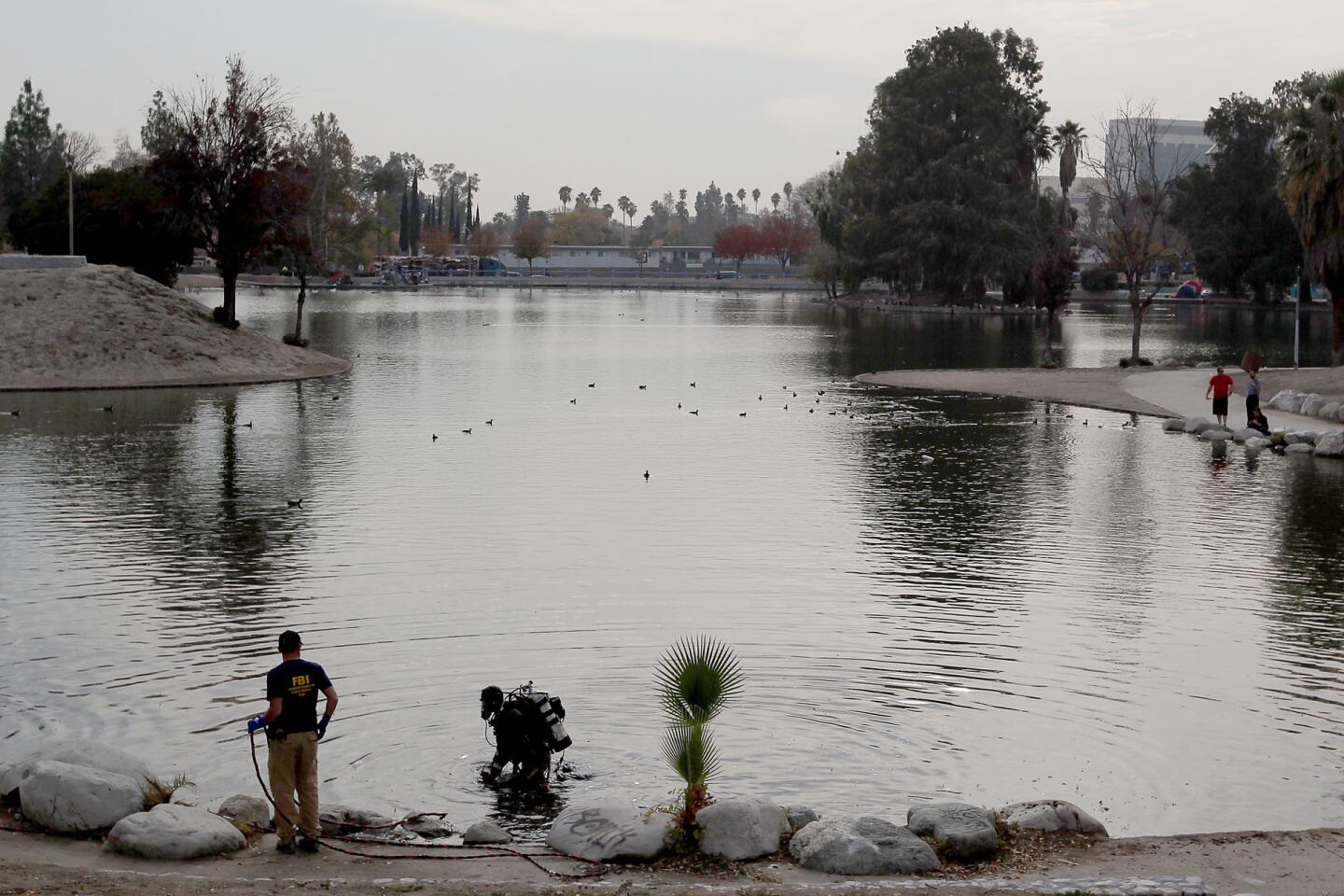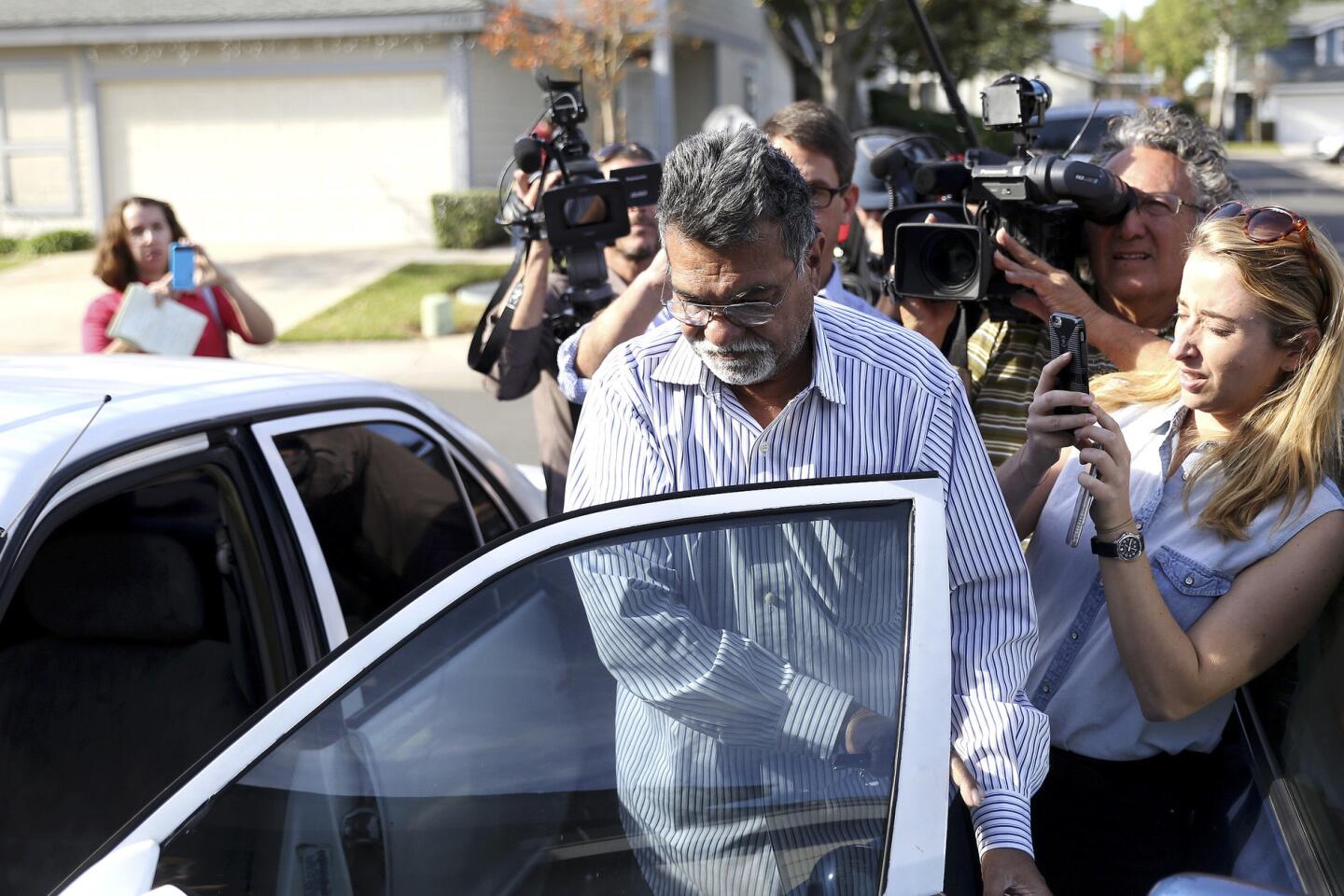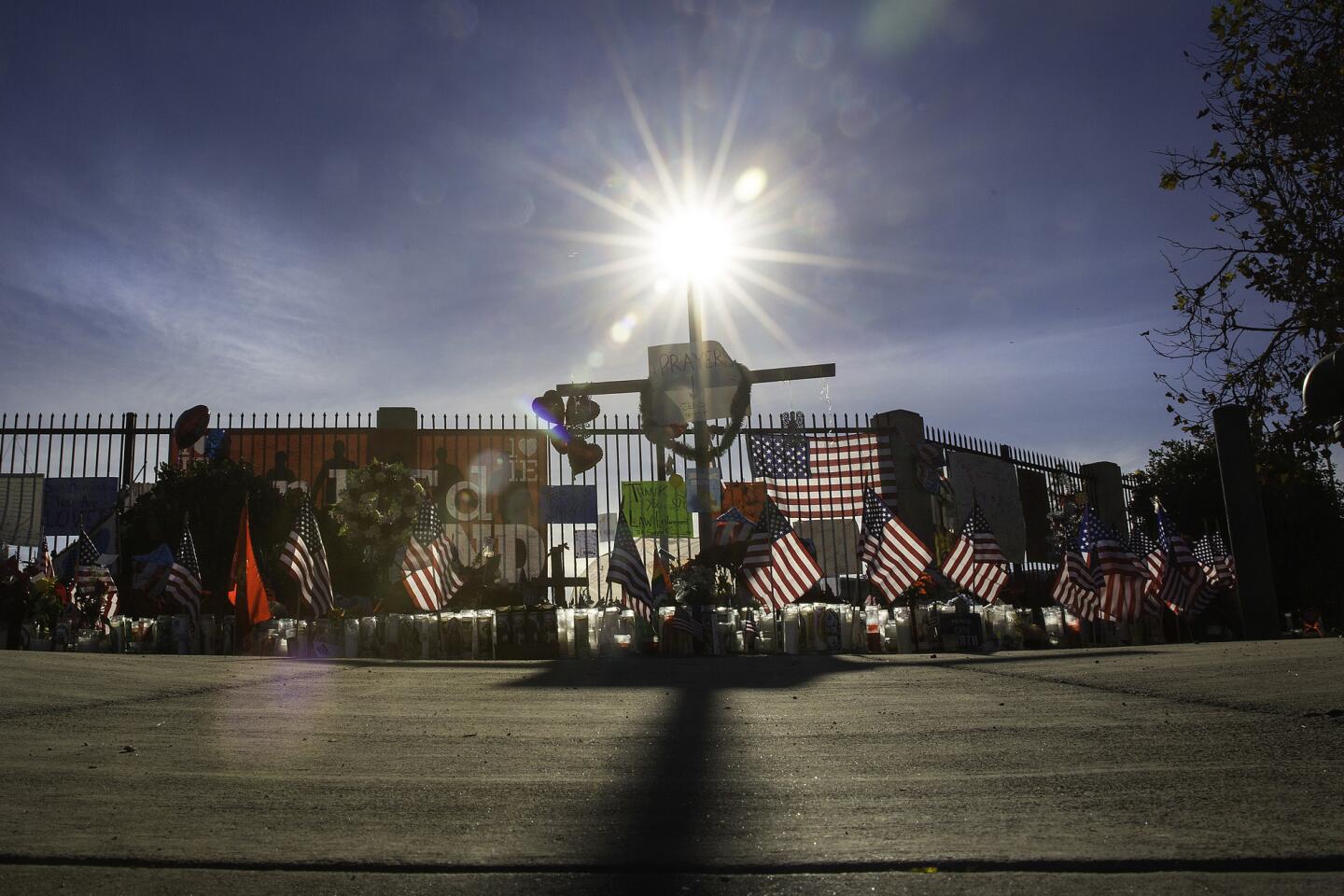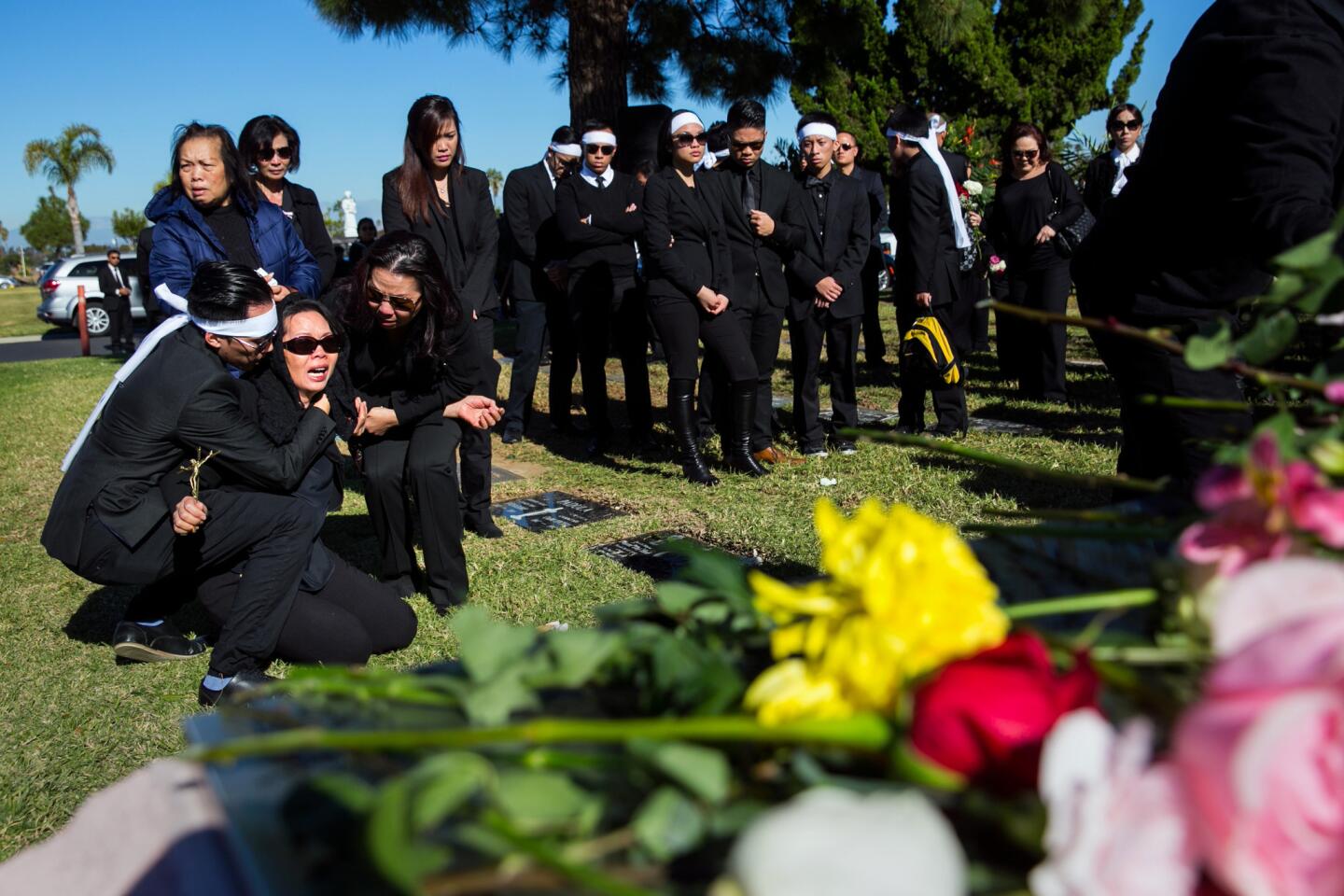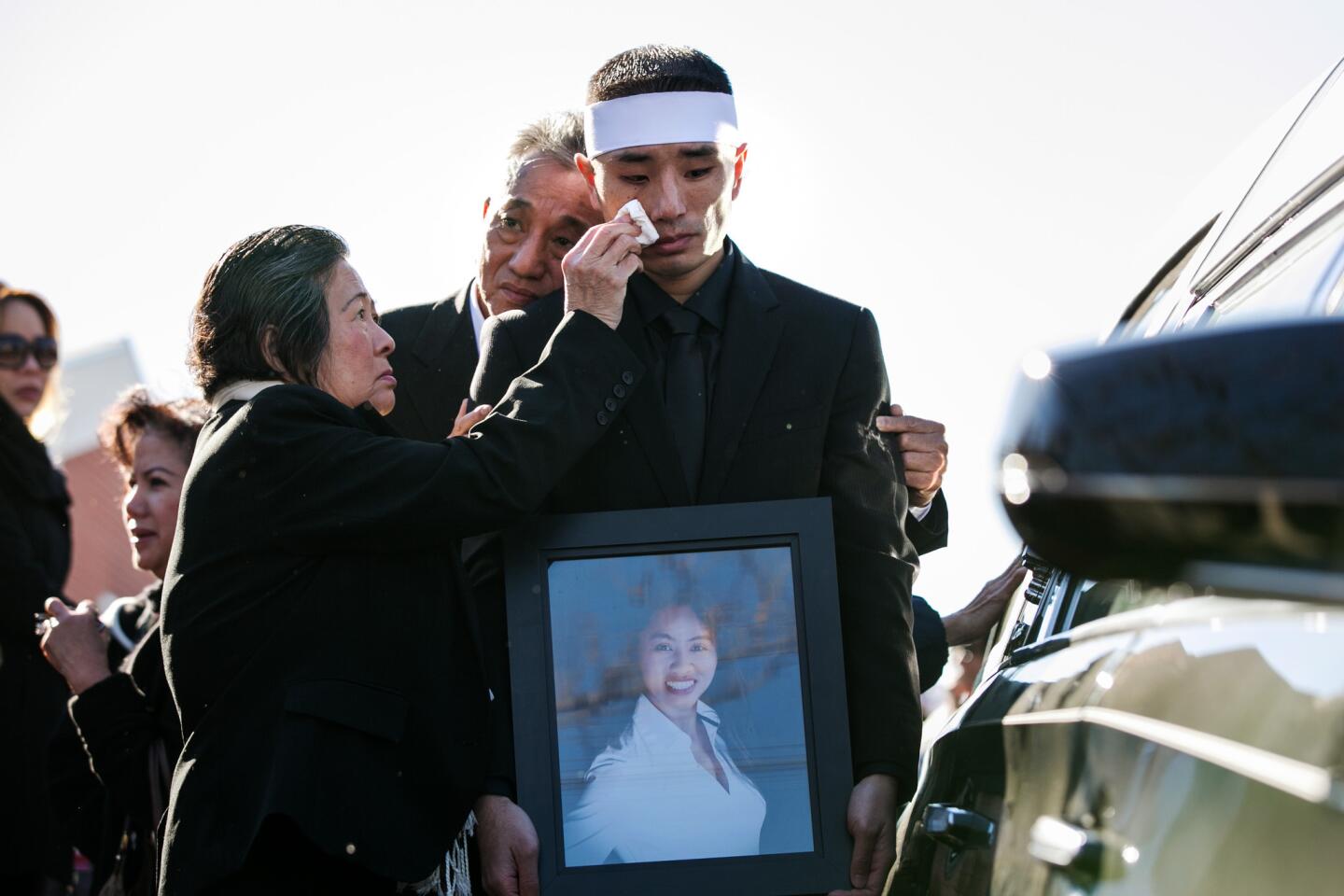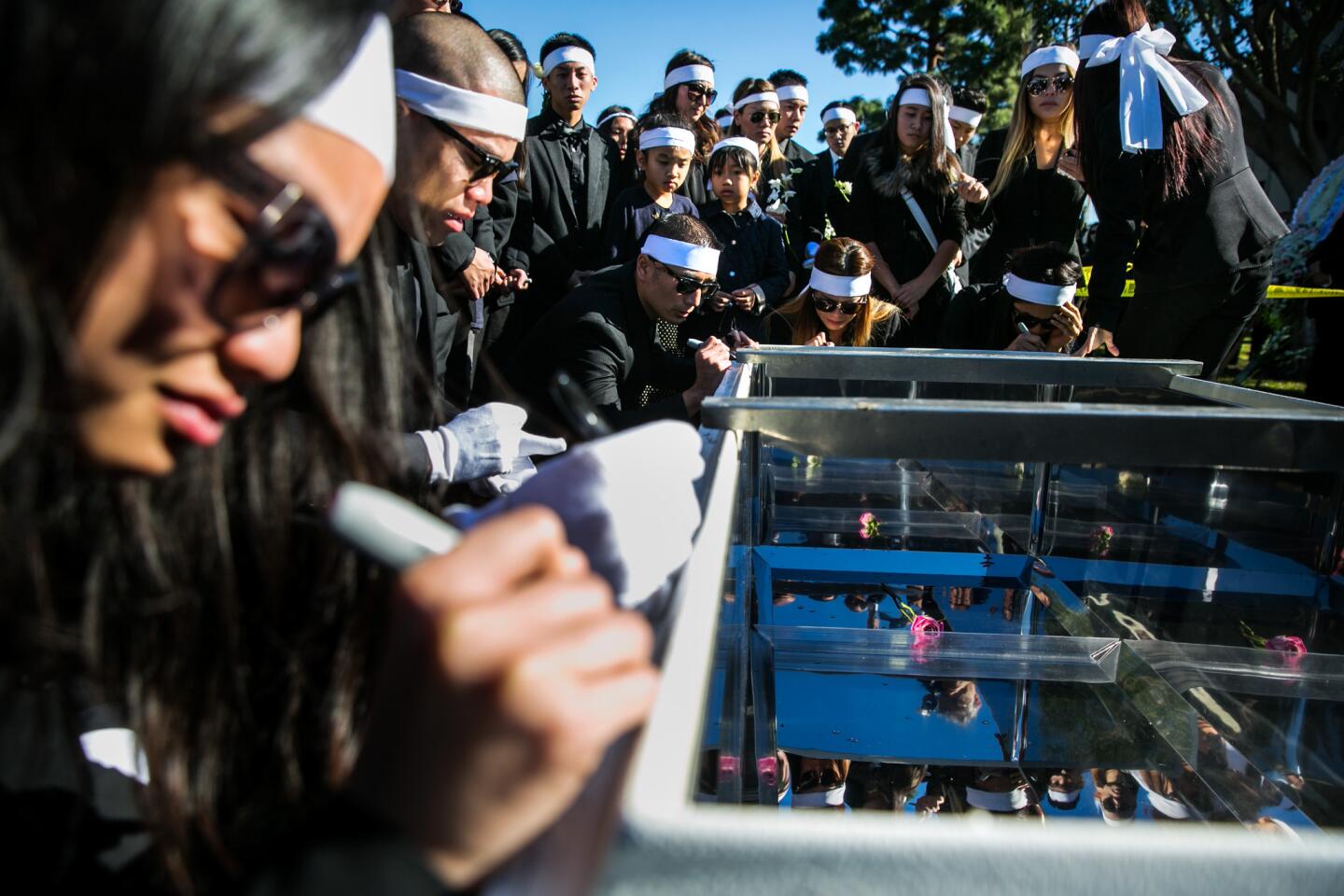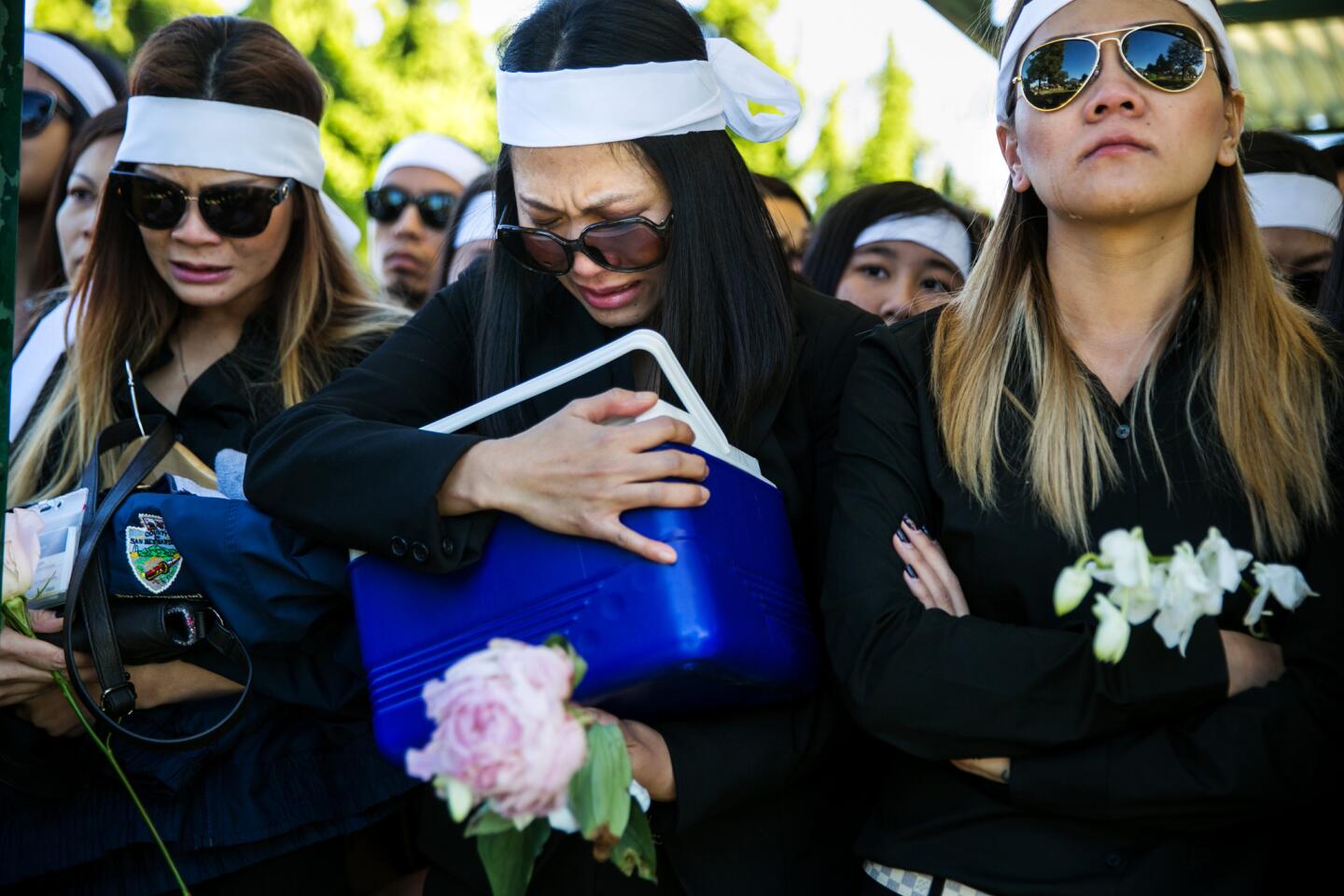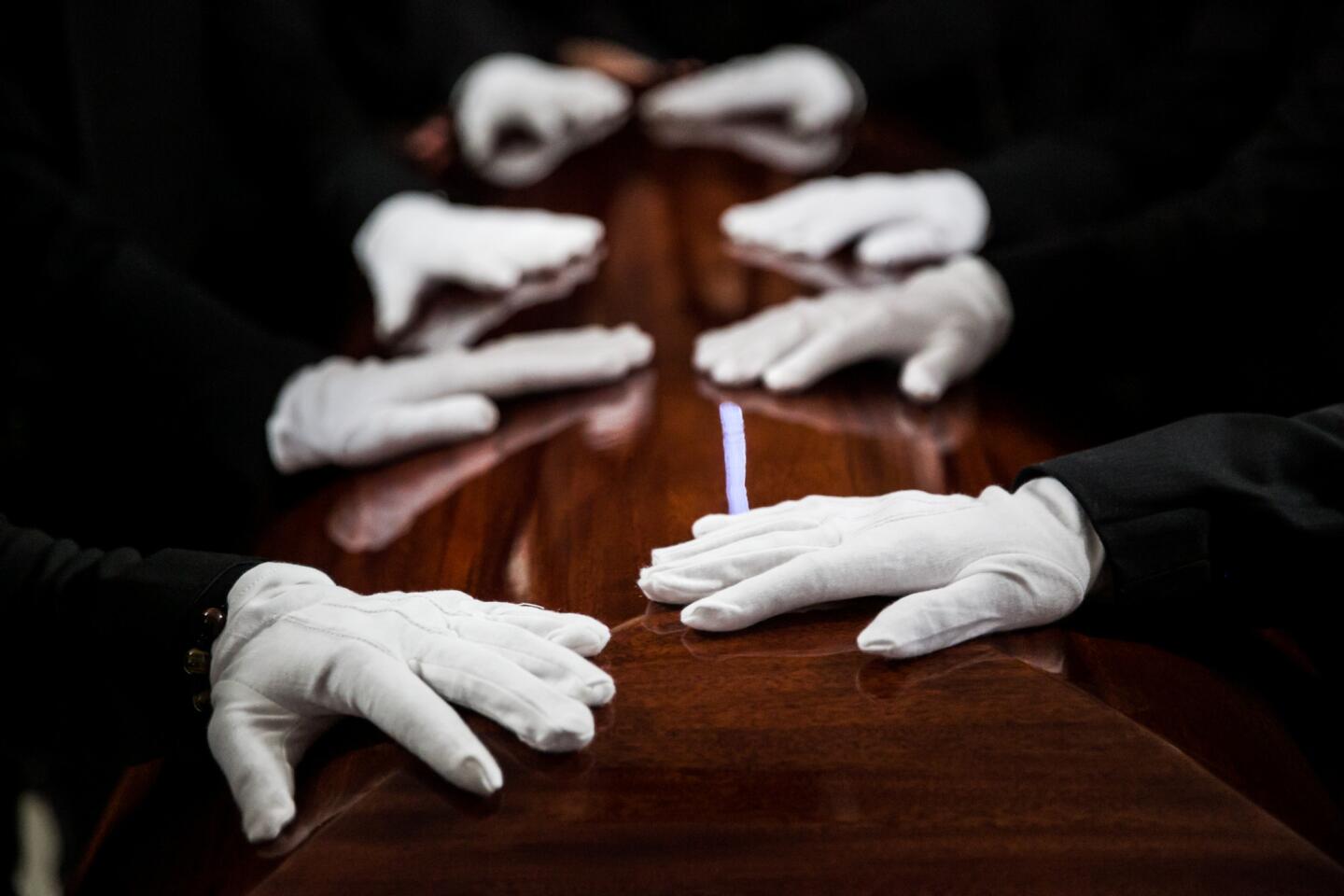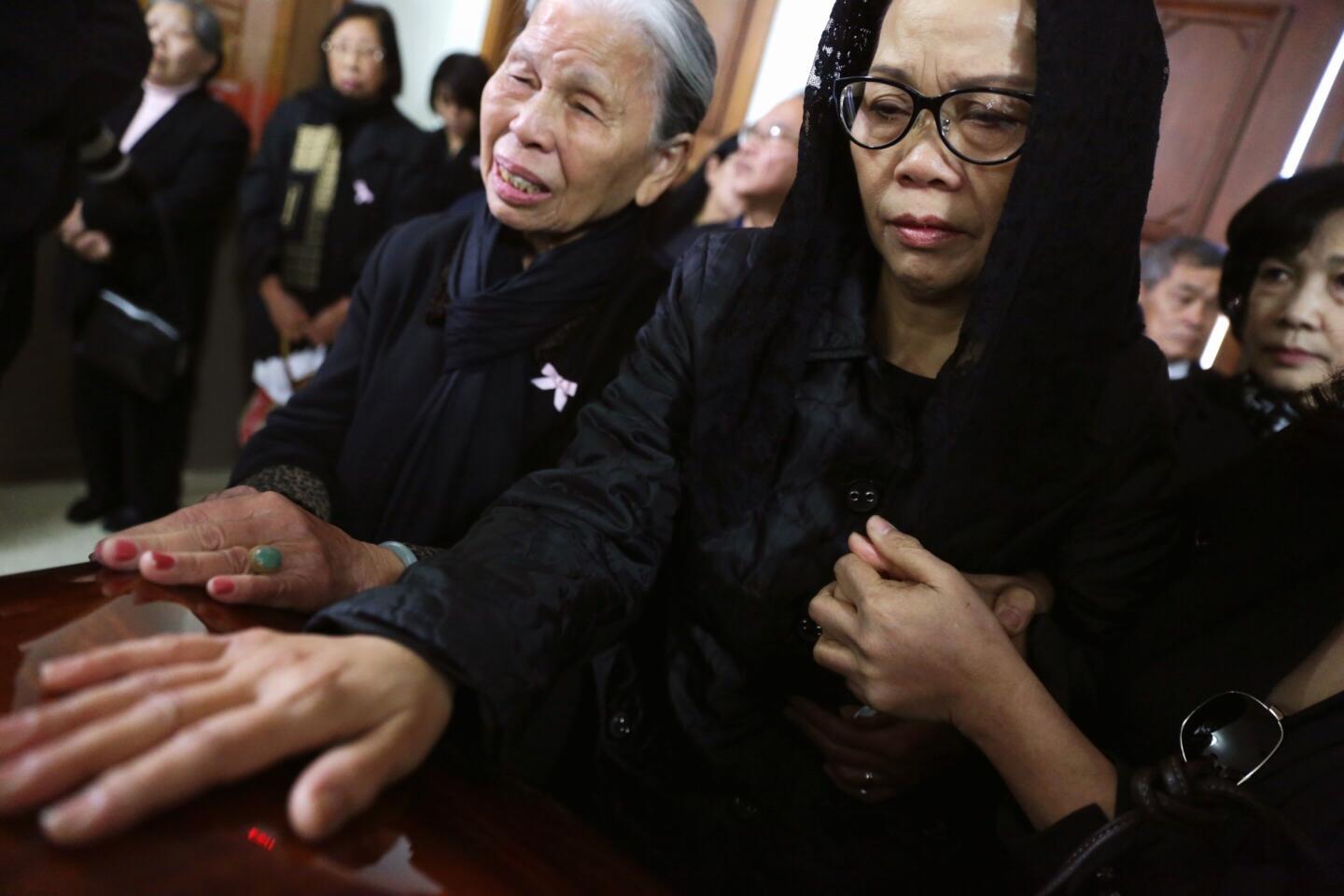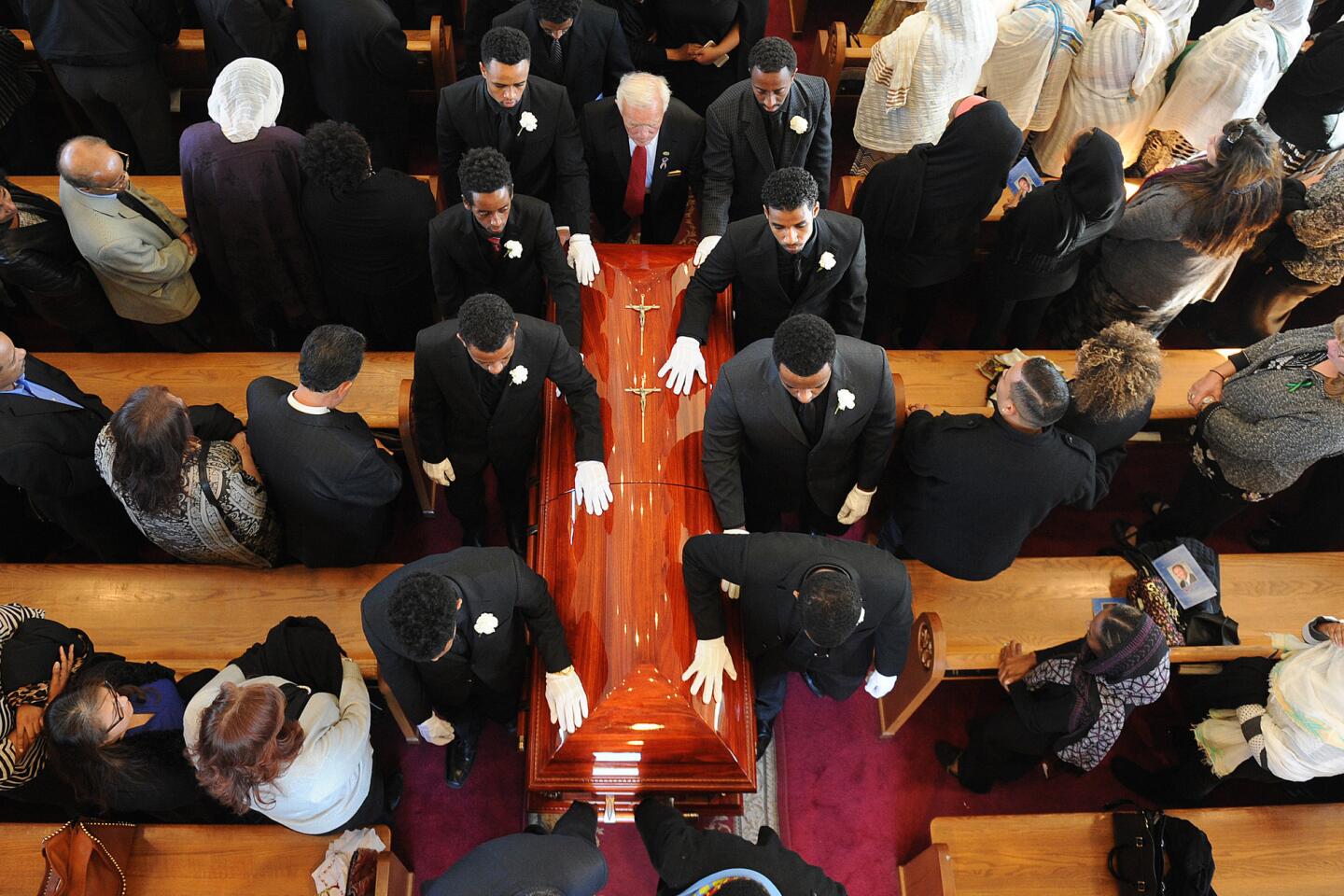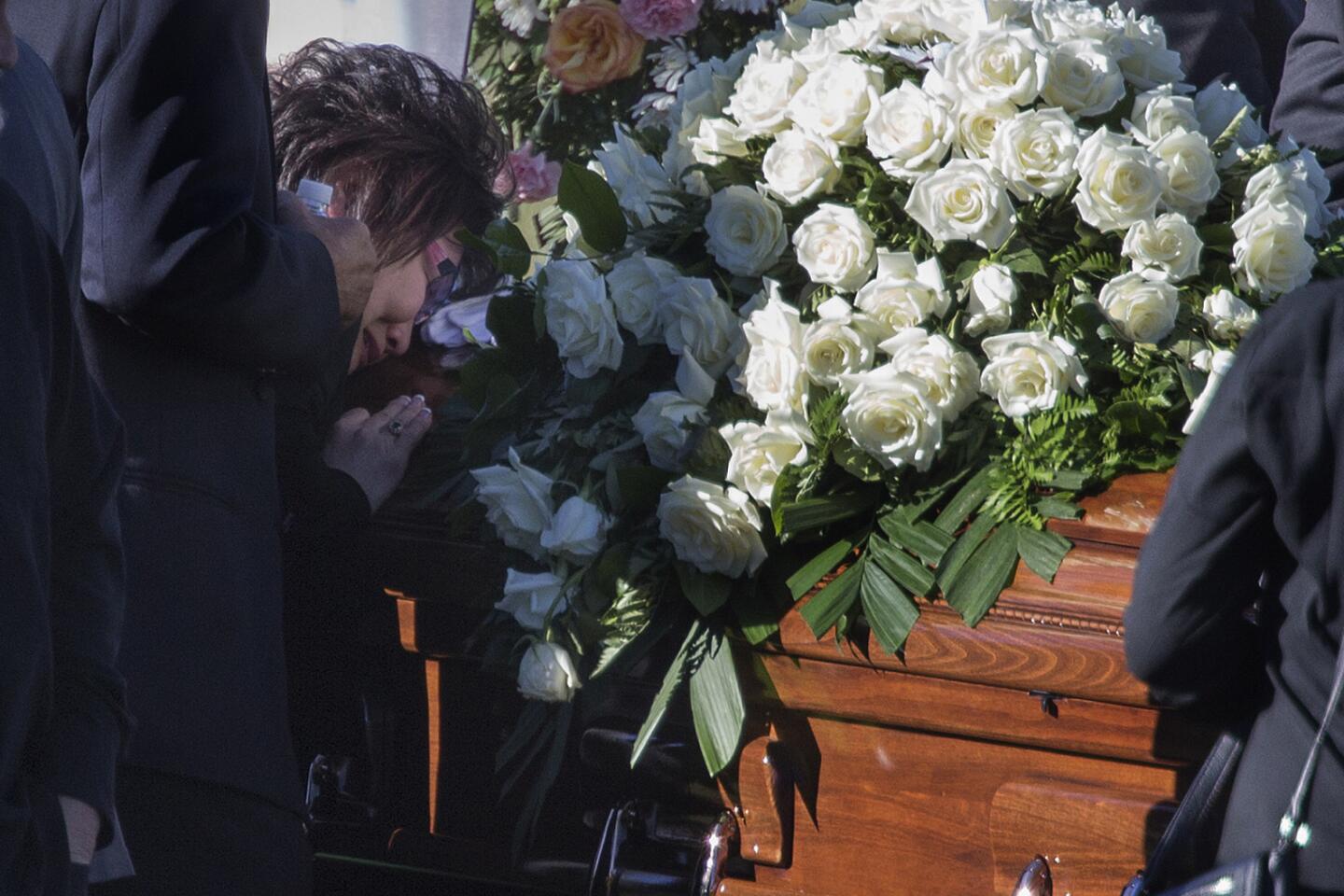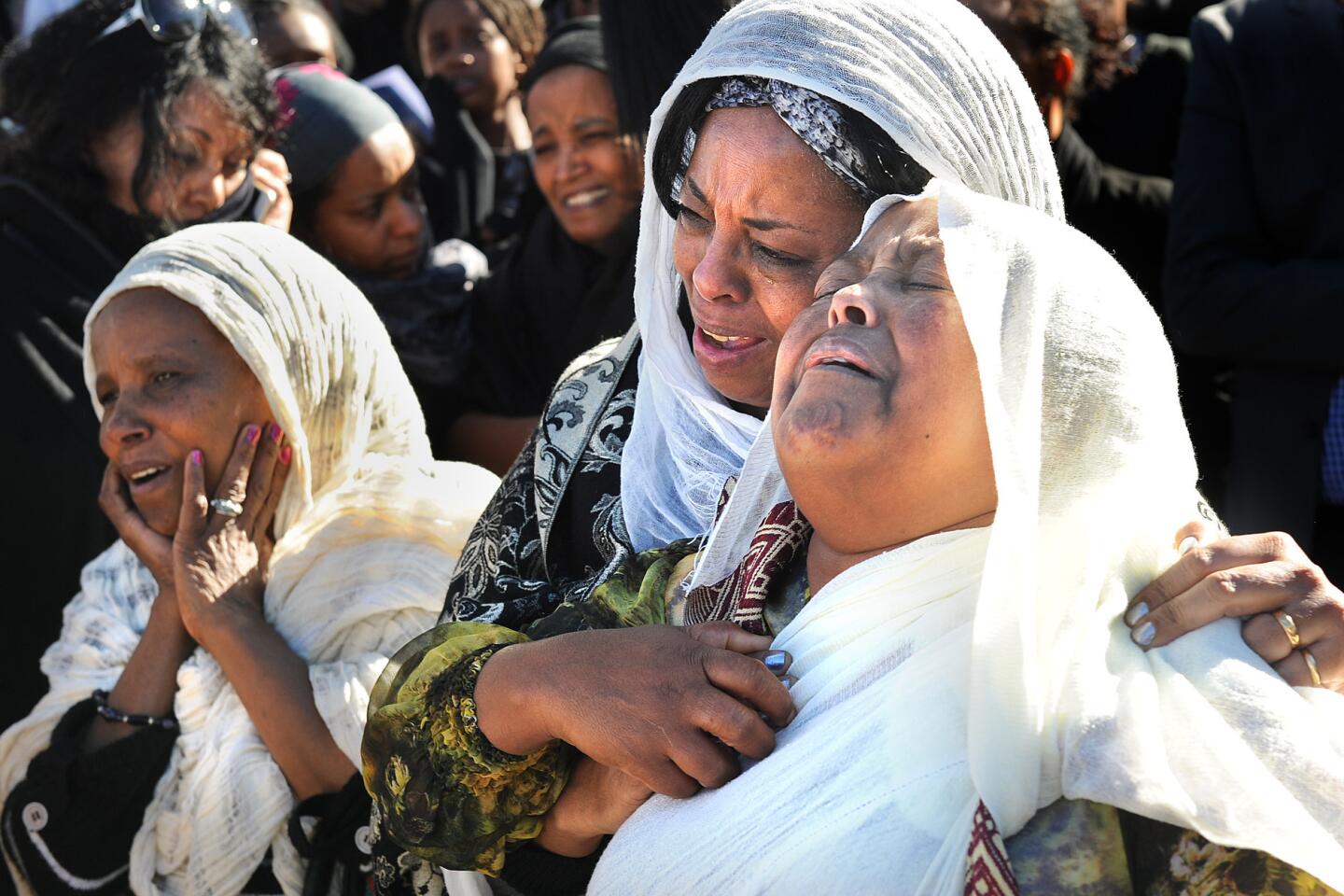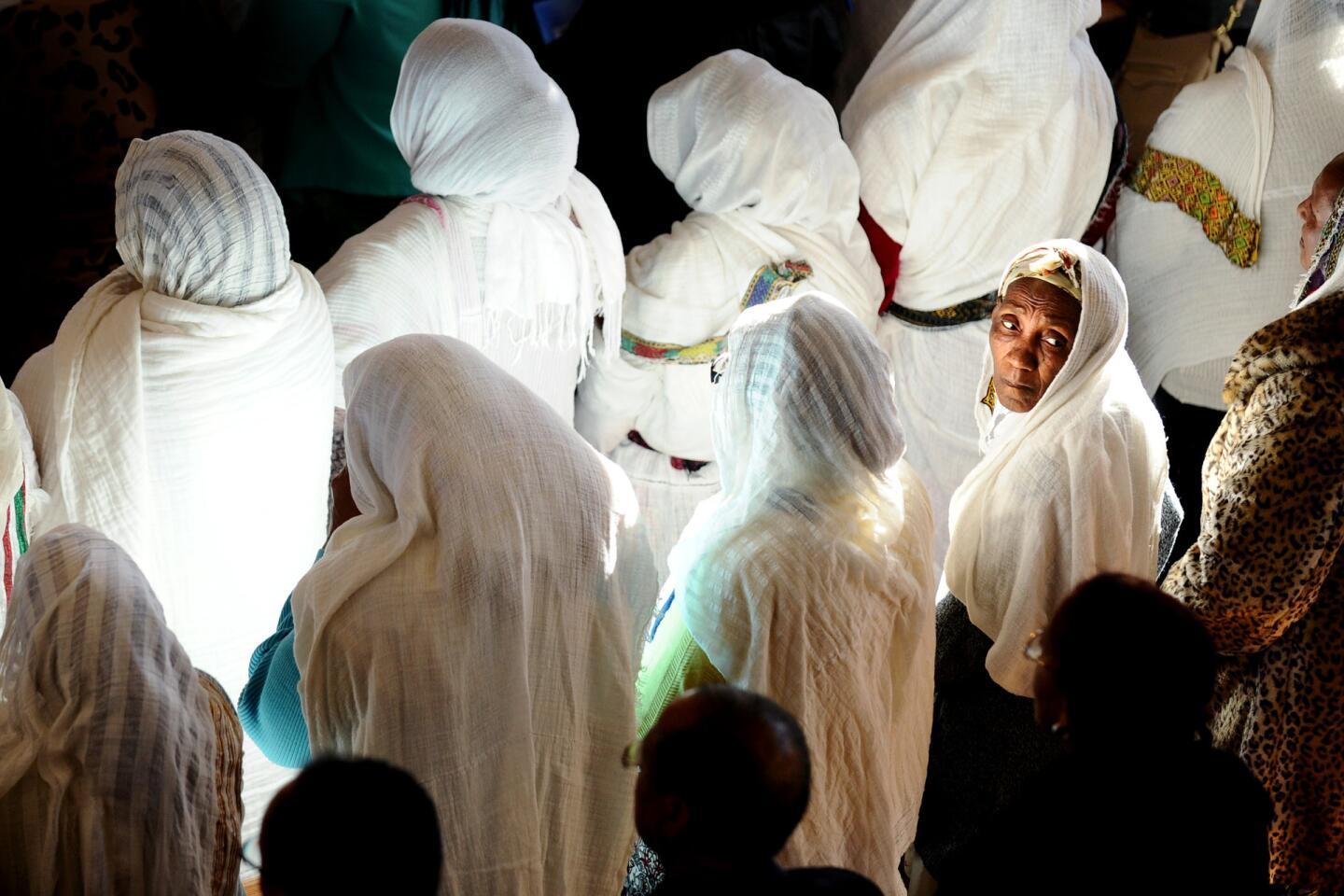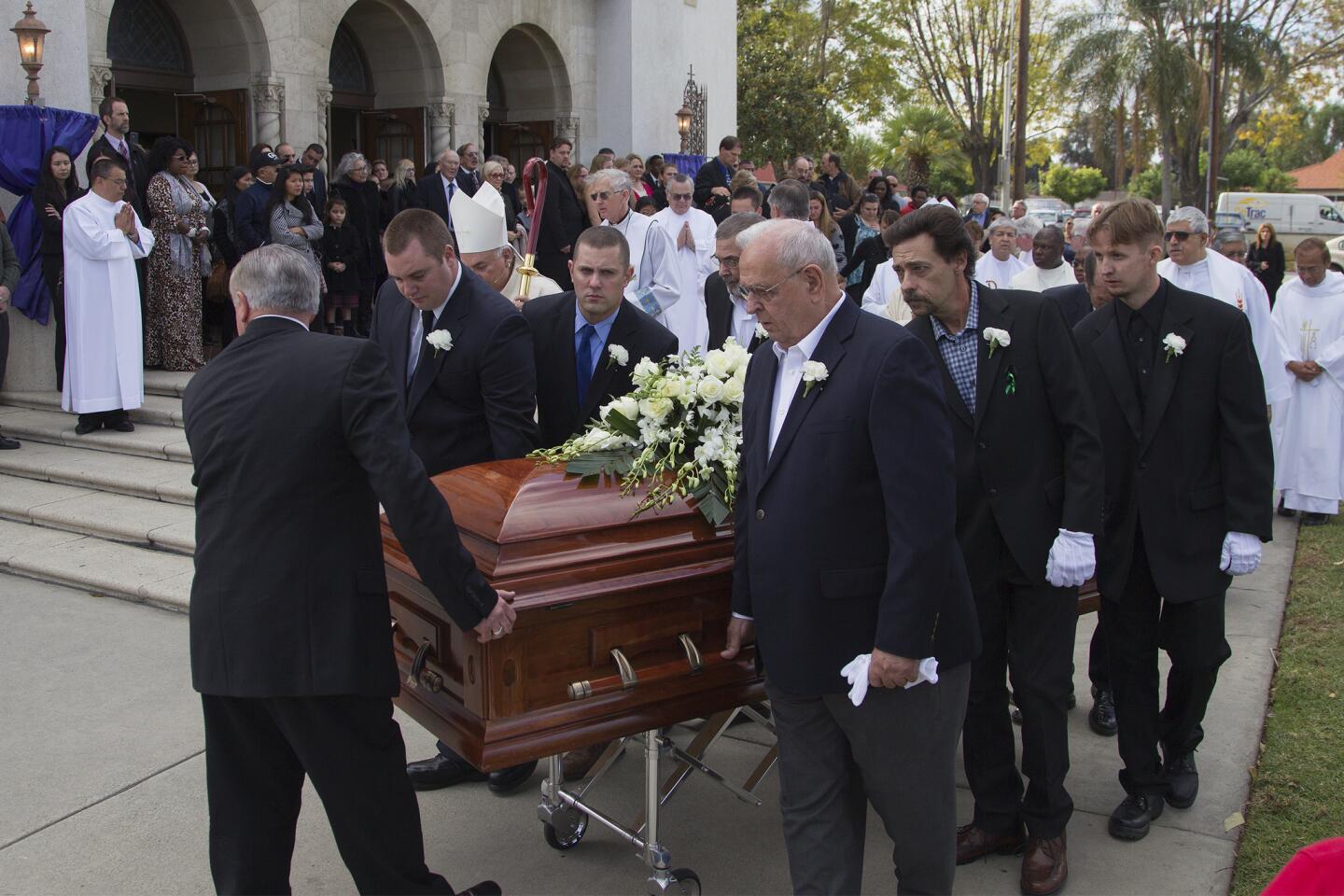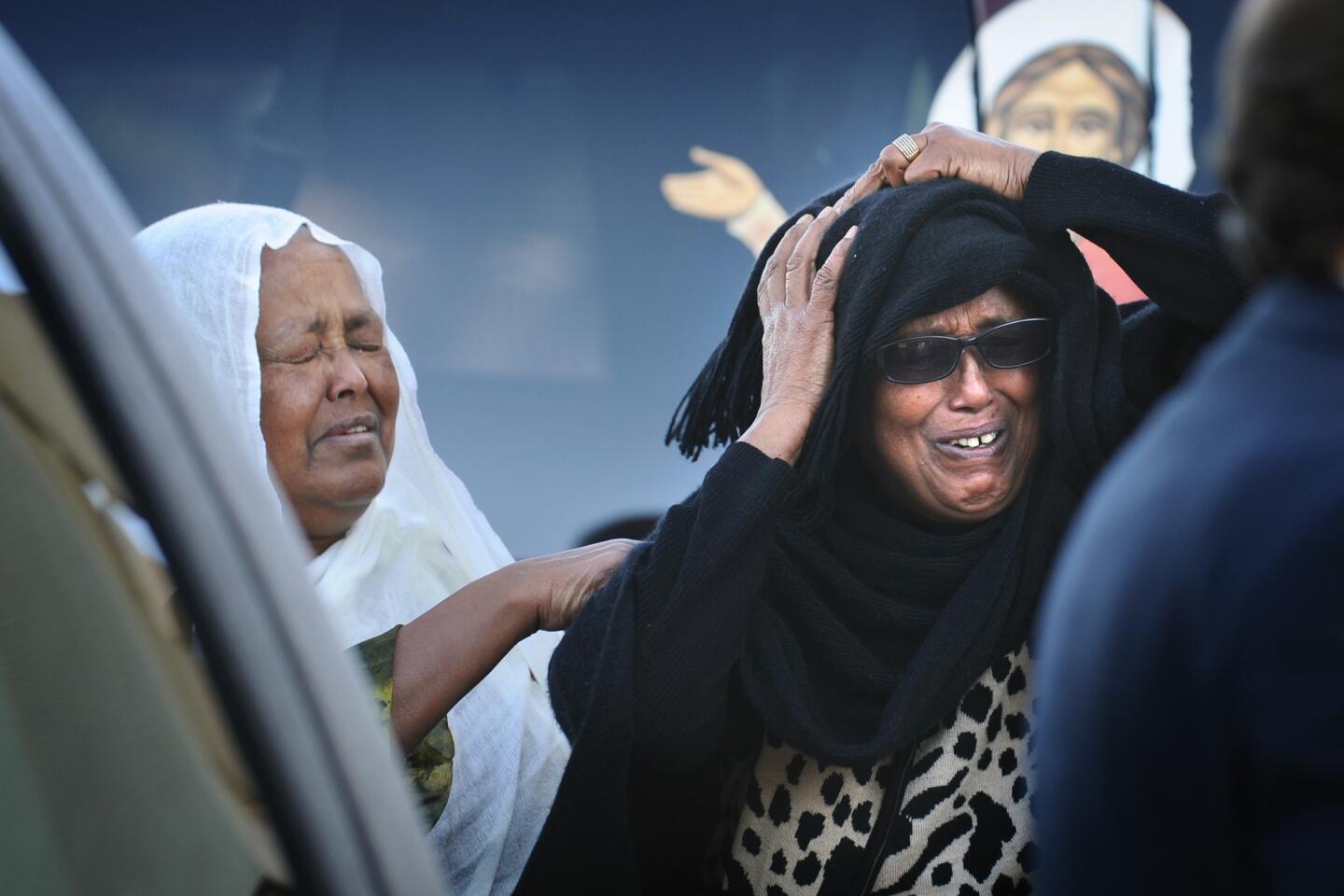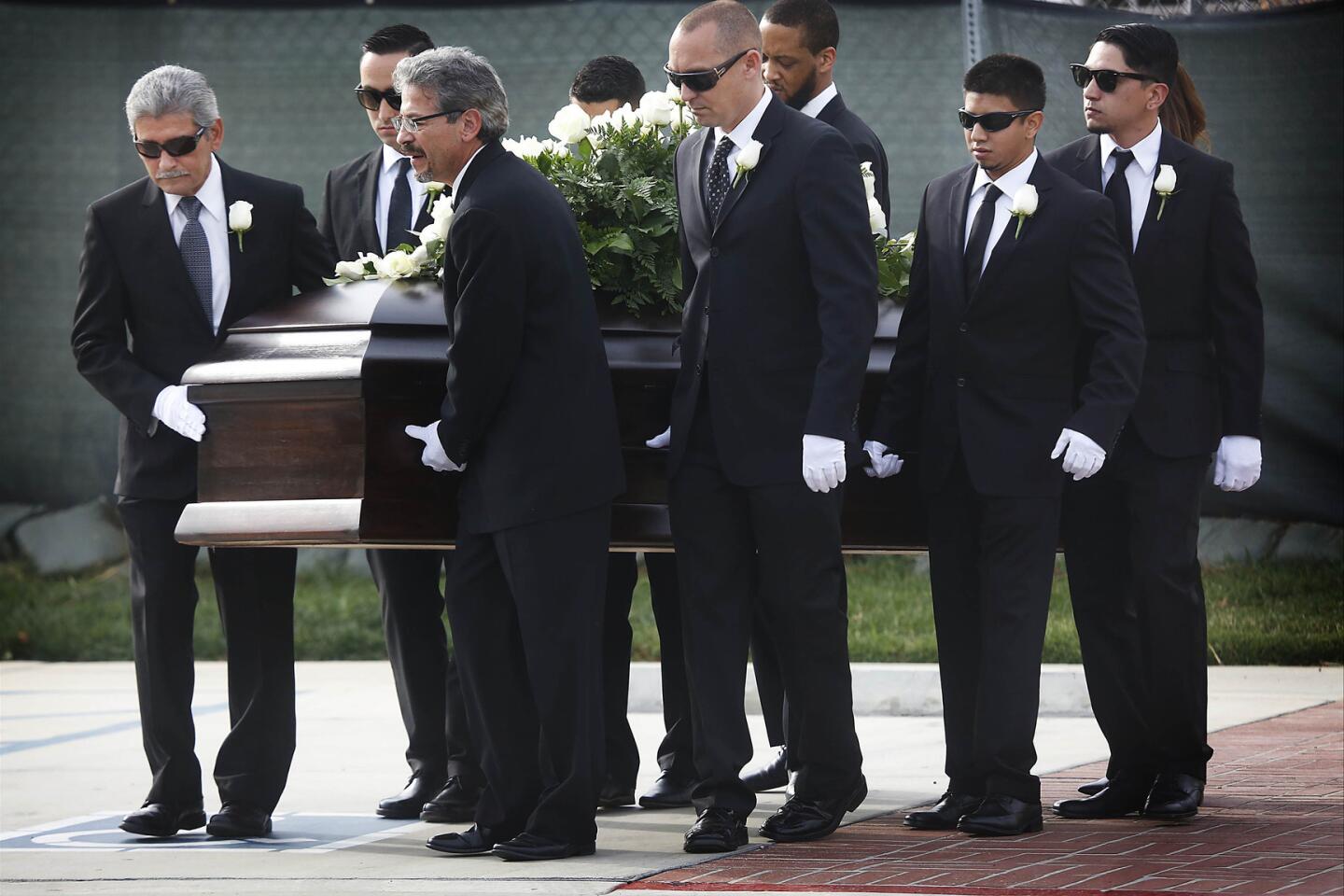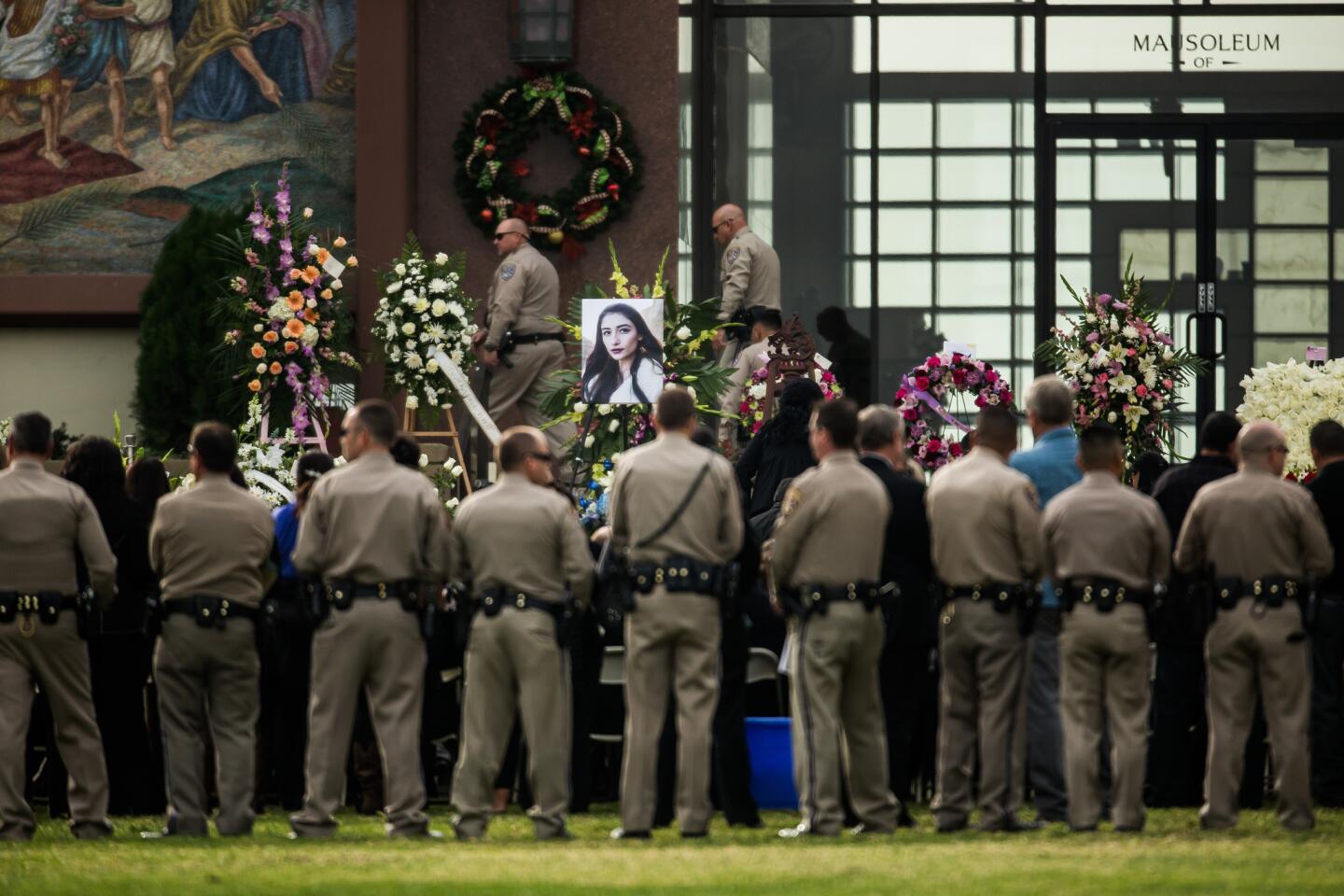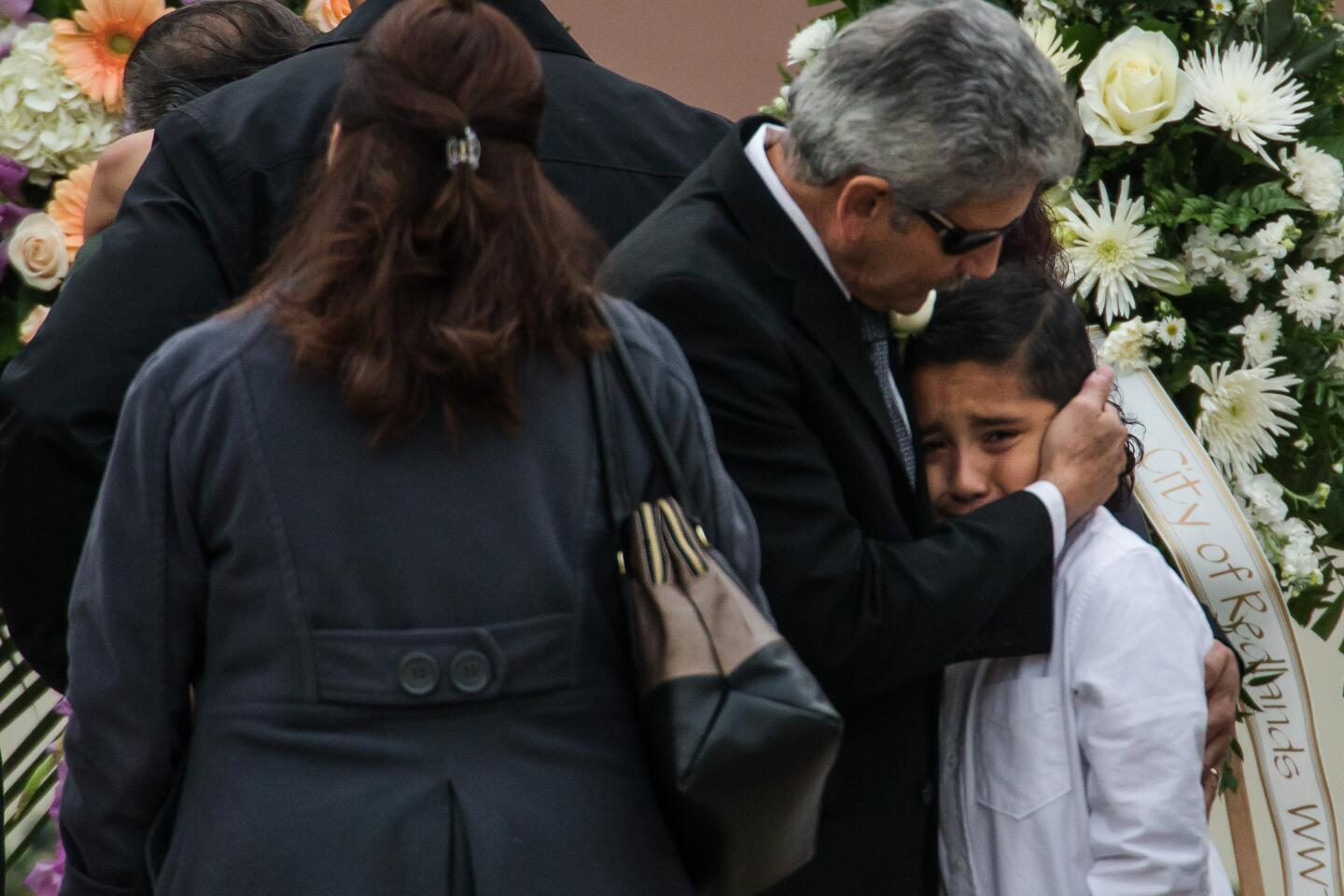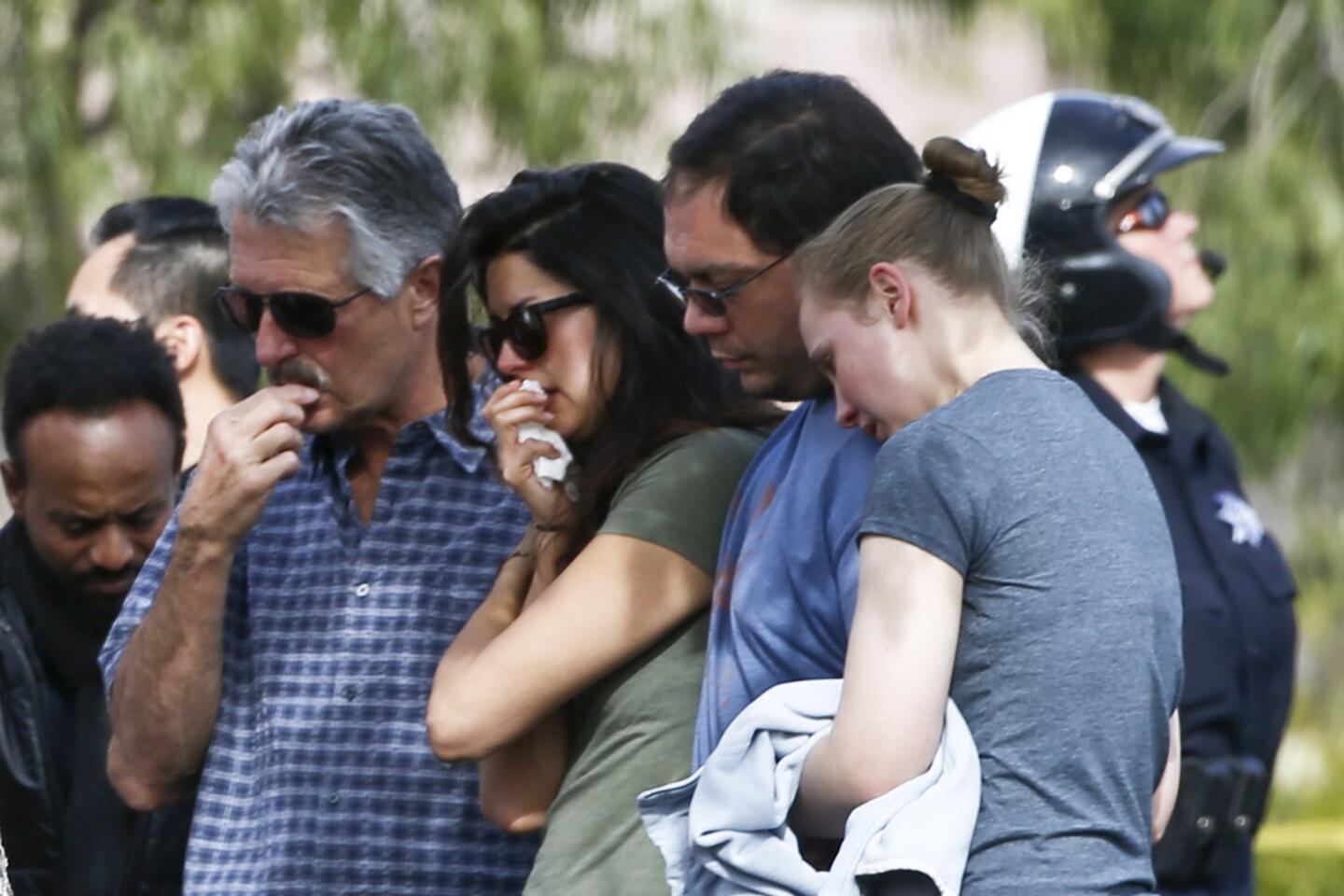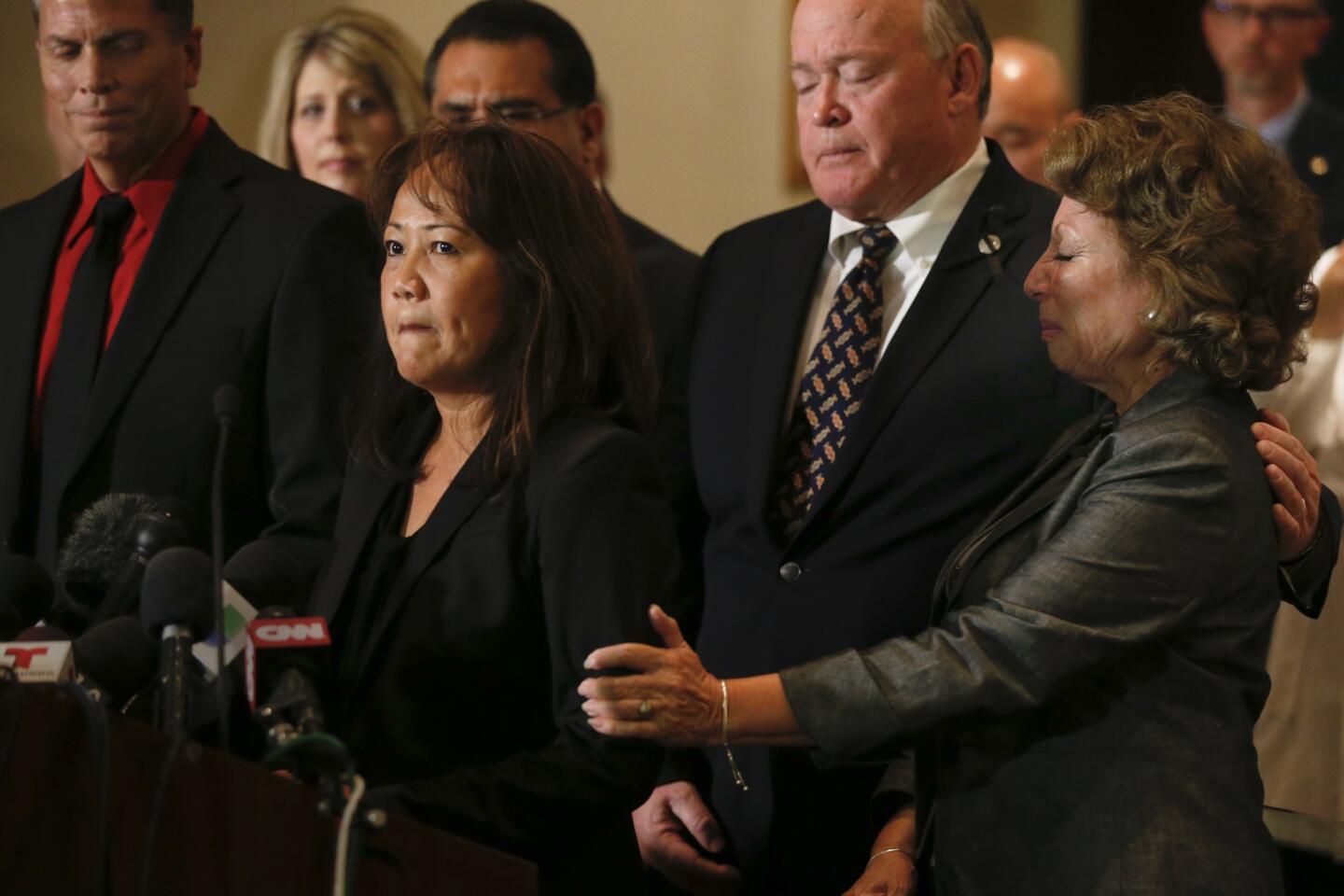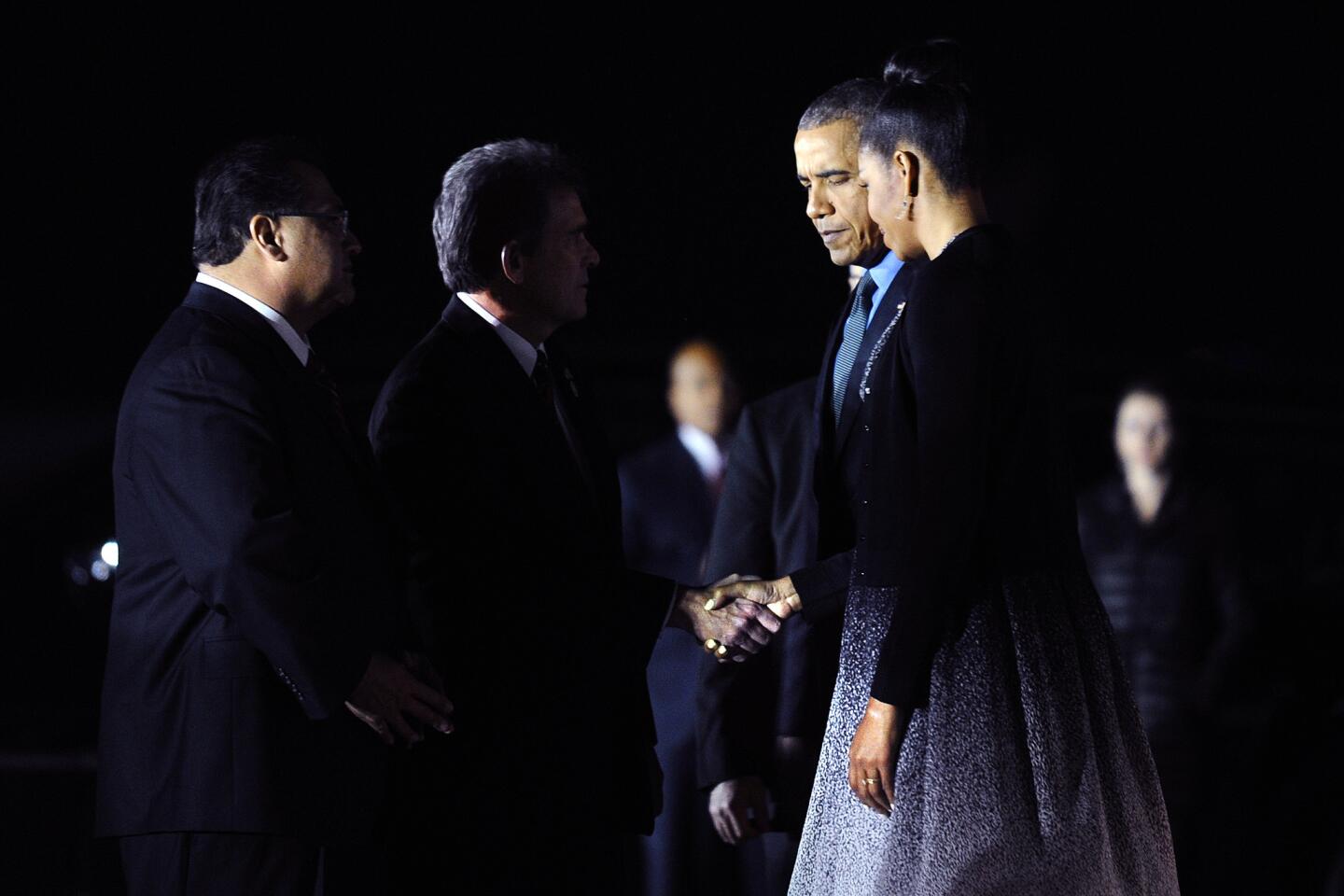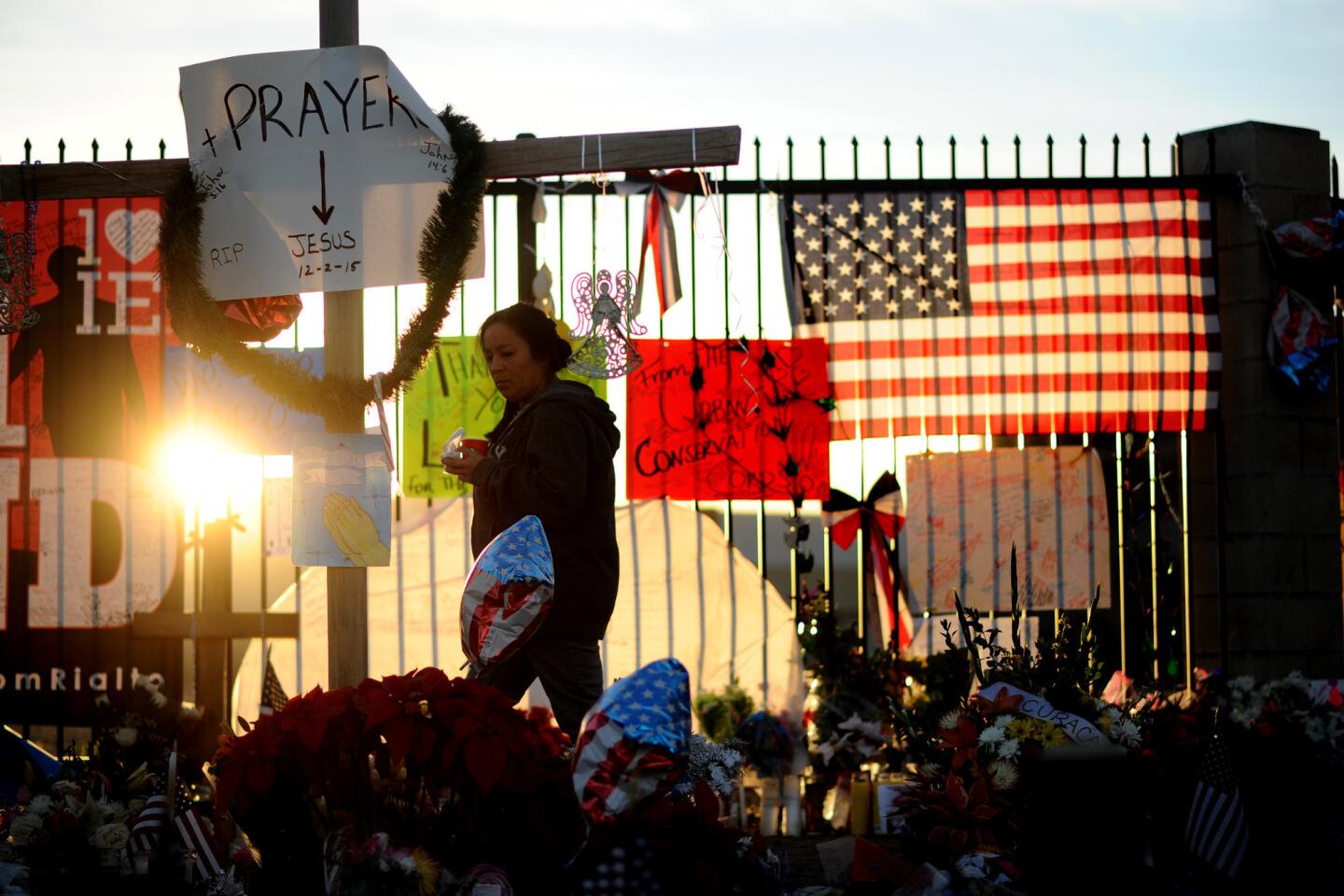Los Angeles Times wins Pulitzer for San Bernardino terrorist attack coverage
The Los Angeles Times has won a Pulitzer Prize, American journalism’s top honor, for its coverage of last year’s mass shooting in San Bernardino.
The staff won the 2016 breaking news prize — The Times’ 44th Pulitzer — for its work chronicling the chaotic, fast-breaking events of Dec. 2 and their aftermath.
In announcing the award Monday, the Pulitzer board cited The Times “for exceptional reporting, including both local and global perspectives, on the shooting in San Bernardino and the terror investigation that followed.”
The board also named Times columnist Steve Lopez as a finalist in the commentary category, while Times critic-at-large Viet Thanh Nguyen won the fiction prize.
The Associated Press won the prestigious public service award for its “Seafood from Slaves” series, an investigation that exposed how some of the seafood on American tables was tied to slave labor. The coverage led to arrests, reforms and the freeing of 2,000 slaves.
The attack at the Inland Regional Center in San Bernardino, which left 14 people dead and 24 injured, was the deadliest terrorist attack in the United States since Sept. 11, 2001, and the deadliest mass shooting since the massacre at an elementary school in Newtown, Conn., in 2012.

The Los Angeles Times won the 2016 Pulitzer Prize for its coverage of the San Bernardino shootings.
Minutes after the massacre, carried out by a married Redlands couple, Syed Rizwan Farook and Tashfeen Malik, The Times had posted its first story, and more than a dozen reporters and photographers were hurrying to the scene, 60 miles east of the downtown L.A. newsroom.
The result, that first day, was a string of detailed stories, including dramatic accounts of the shooting scene and the revelation that Farook had traveled to Saudi Arabia and returned with a wife he had met online — an early indication of their radicalization.
The Times’ coverage included a database of the victims and a multimedia reconstruction of the police pursuit that culminated in the shooting death of the killers.
The Times produced three days of special front pages for the coverage, and in the days that followed, reporters continued chasing the story from San Bernardino, Washington, Saudi Arabia and Pakistan, producing detailed accounts of the shooters’ backgrounds.
The story broke just weeks after The Times had lost several dozen staff members — including veteran reporters and editors — to voluntary buyouts.
“This prize belongs to the entire newsroom,” Times editor and publisher Davan Maharaj said. “This is a newsroom that rises to the occasion to serve readers when everything is on the line — and delivers every time.”
Speaking to a gathering of the staff, he added that it was important to remember the victims of the tragedy and their families.
One of the editors coordinating the coverage was California editor Shelby Grad, who said the story represented a marriage of different newsroom disciplines, from gumshoe reporting to Web-video production to social-media expertise.
“We had people who could really put it together in all these different platforms. We were also lucky to have people around the globe,” he said. “Many people spent weekend after weekend without a break, knocking on doors.”
In the breaking news category, the Pulitzer board named as finalists the staff of the Baltimore Sun, for coverage of riots that followed the death in police custody of Freddie Gray, and the staff of the Post and Courier of Charleston, S.C., for its coverage of the videotaped shooting of Walter Scott by police.
Lopez was a finalist in the commentary category for a series of columns grappling with wealth inequality in Southern California, which Lopez described as “the stratified kingdom of hillside castles and cardboard cities.”
Lopez’s work explored the lives of a 71-year-old South Los Angeles woman who survived without running water, a laid-off aerospace worker, an Air Force veteran seeking work, casualties of forced gentrification in Echo Park, and the work of a real estate agent in Beverly Hills.
Nguyen won the fiction prize for his novel “The Sympathizer,” which the Pulitzer board described as “a layered immigrant tale told in the wry, confessional voice of a ‘man of two minds’ — and two countries, Vietnam and the United States.” Nguyen is an associate professor of English and American studies and ethnicity at USC.
The prize for international reporting went to former L.A. Times foreign correspondent Alissa J. Rubin for her work in the New York Times documenting the plight of women in Afghanistan.
Another former L.A. Times writer, T. Christian Miller, now of ProPublica, along with Ken Armstrong of the Marshall Project, won the prize in explanatory reporting for a series of stories detailing how police and prosecutors in Washington state labeled a rape victim a liar — and two Colorado detectives eventually connected a suspect to the crime. ProPublica and the Marshall Project are nonprofit news organizations.
ALSO
It could cost $3 billion to prevent disastrous earthquake damage along San Francisco’s Embarcadero
Trump is poised to win New York, but by how much matters a lot to delegate-hungry Cruz and Kasich
It’s National Park Week. How many have you visited?
More to Read
Sign up for Essential California
The most important California stories and recommendations in your inbox every morning.
You may occasionally receive promotional content from the Los Angeles Times.
